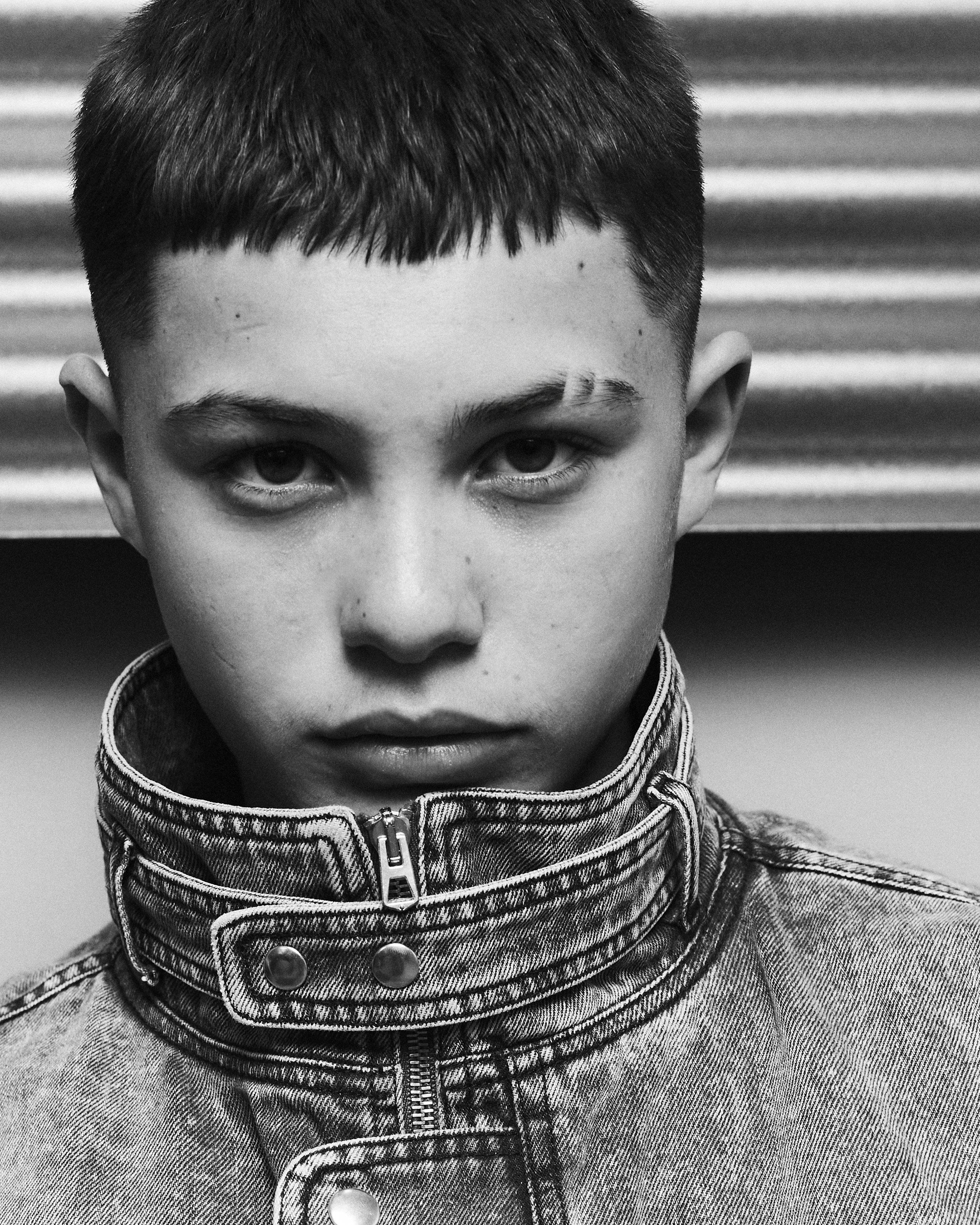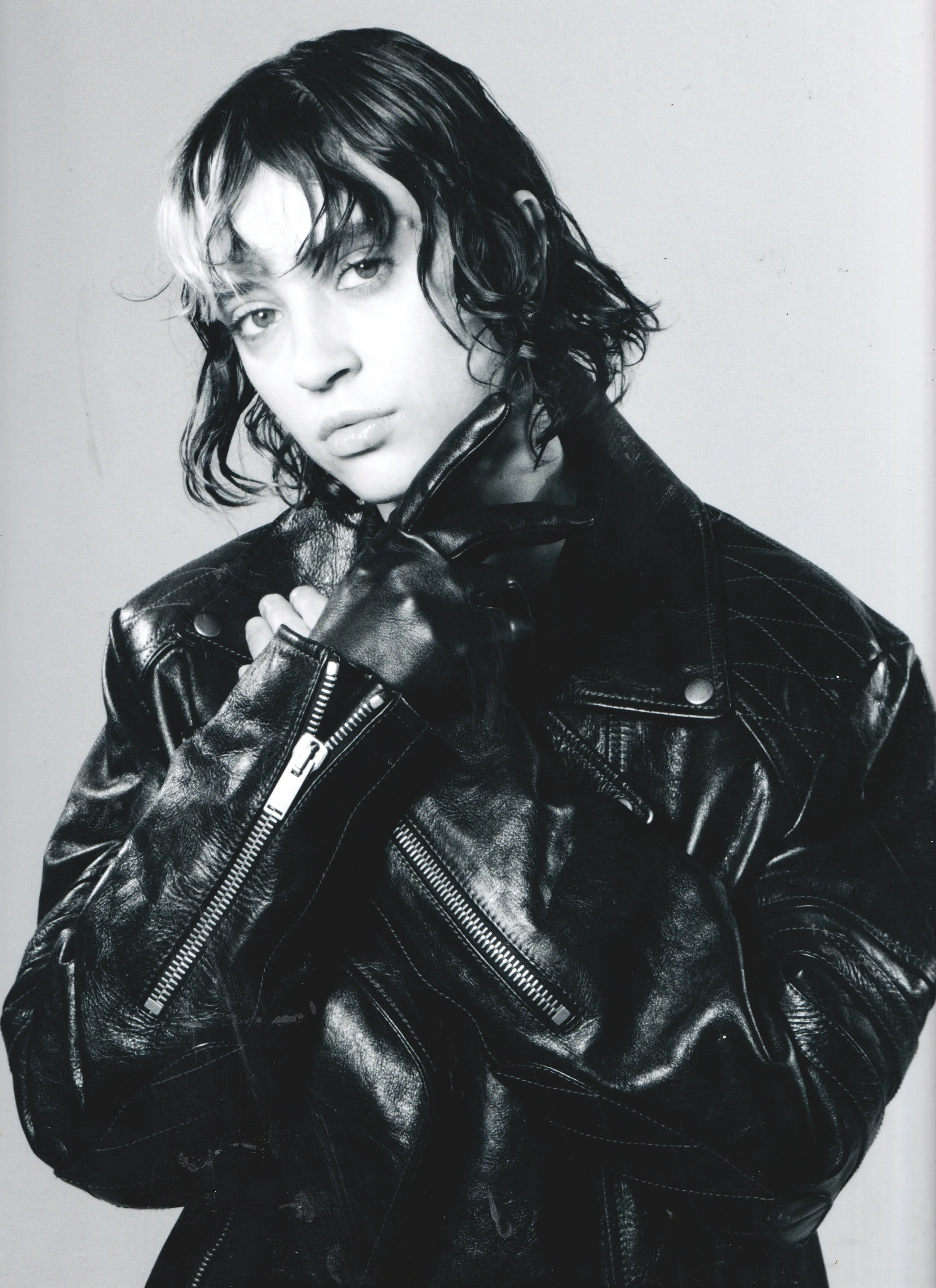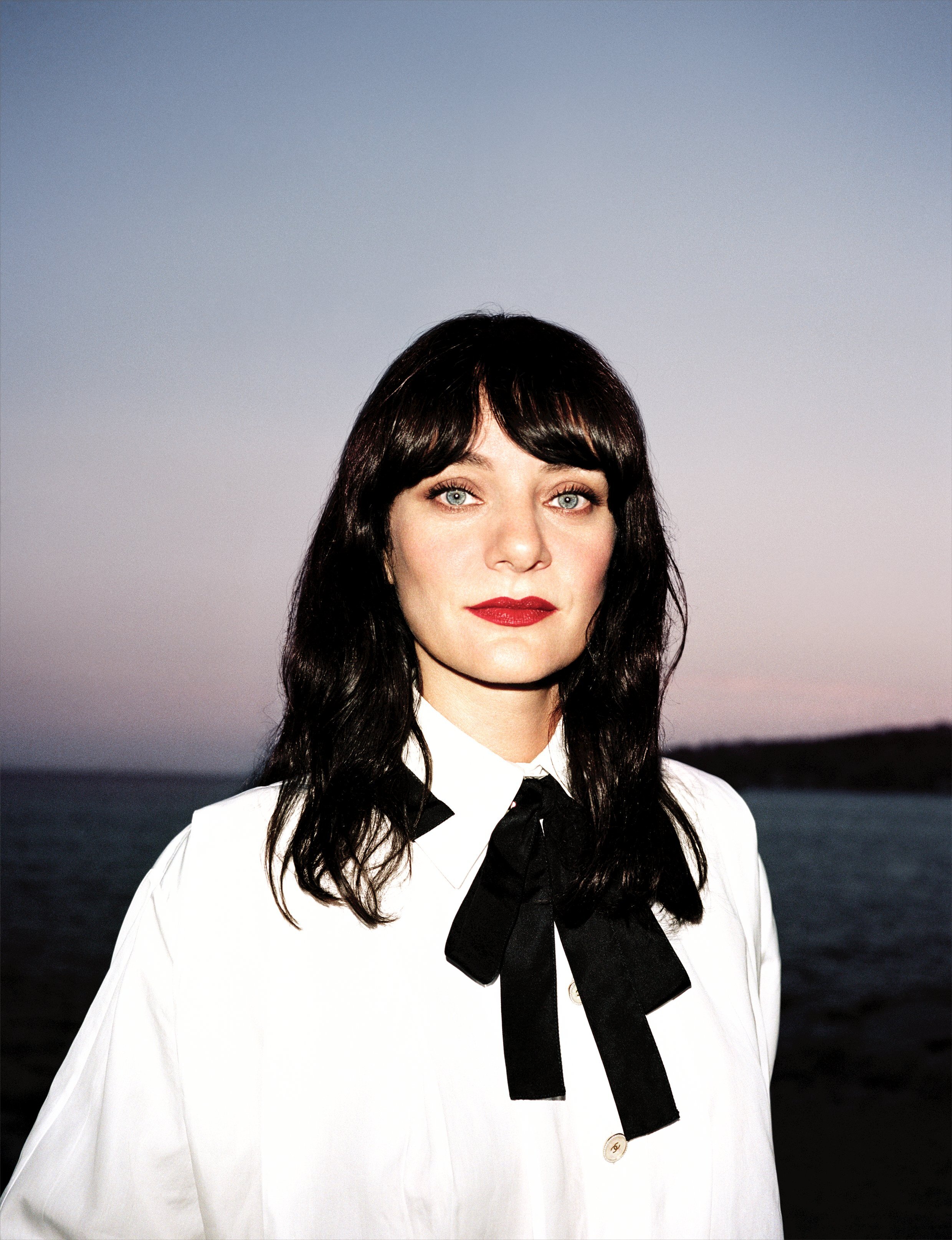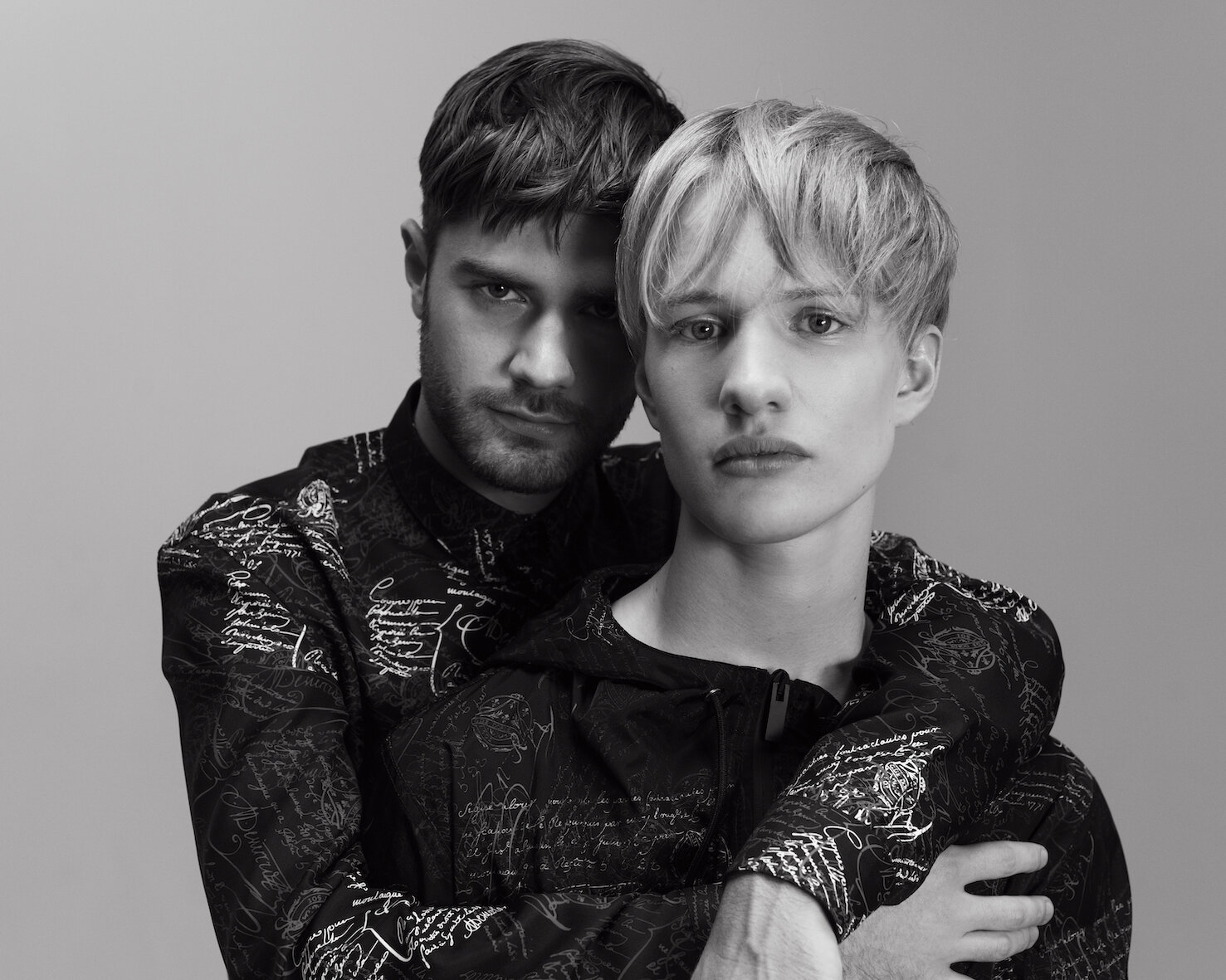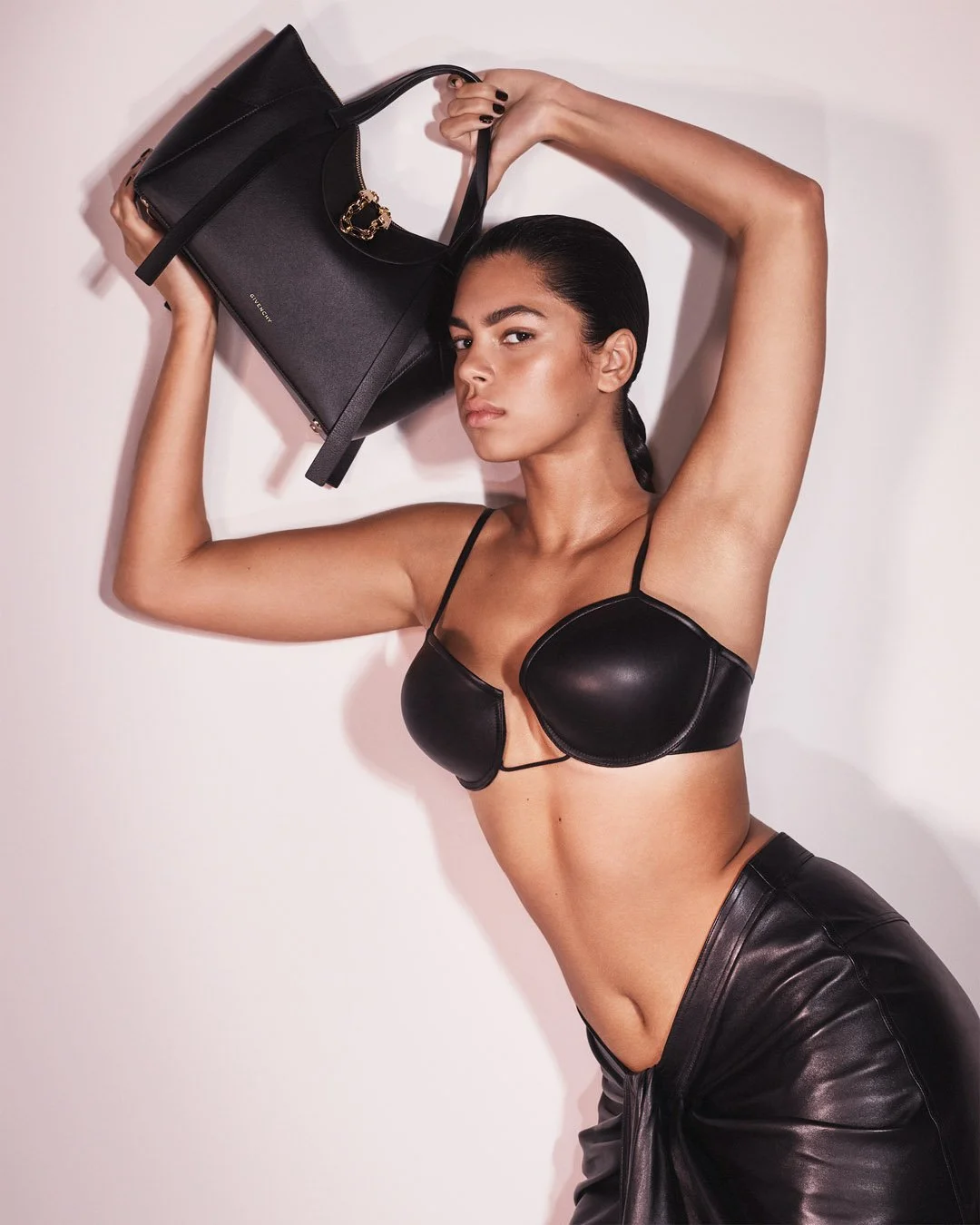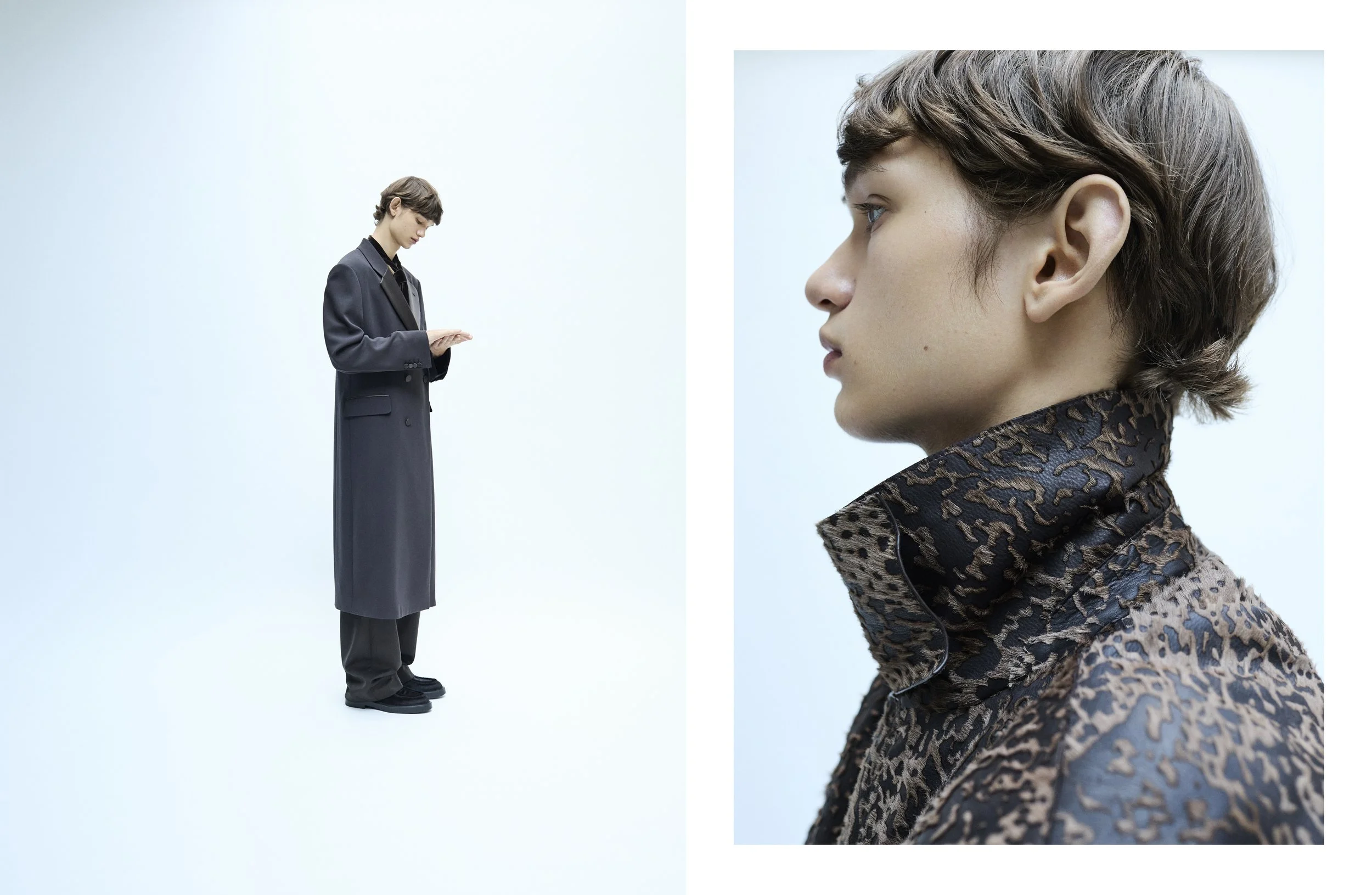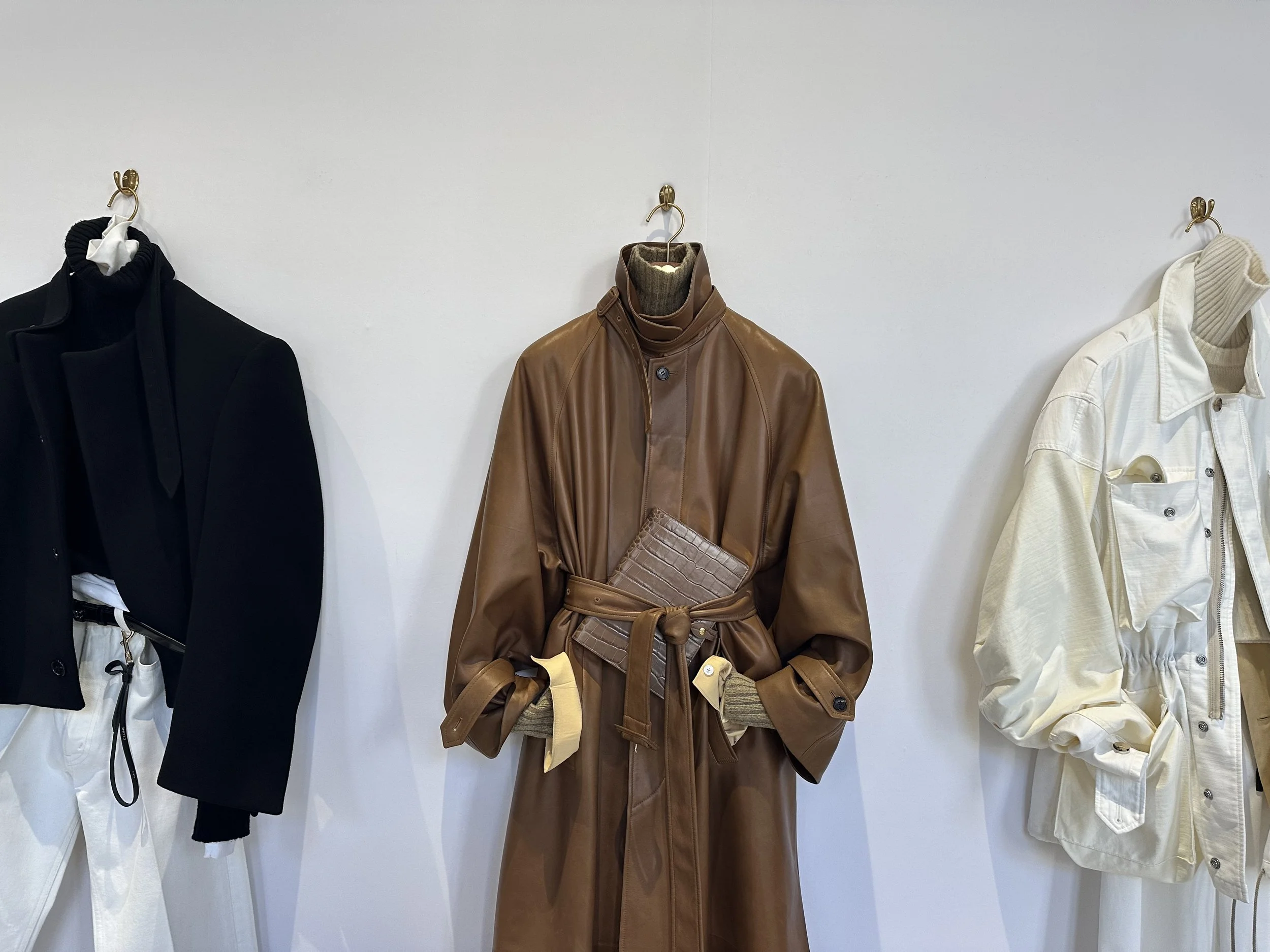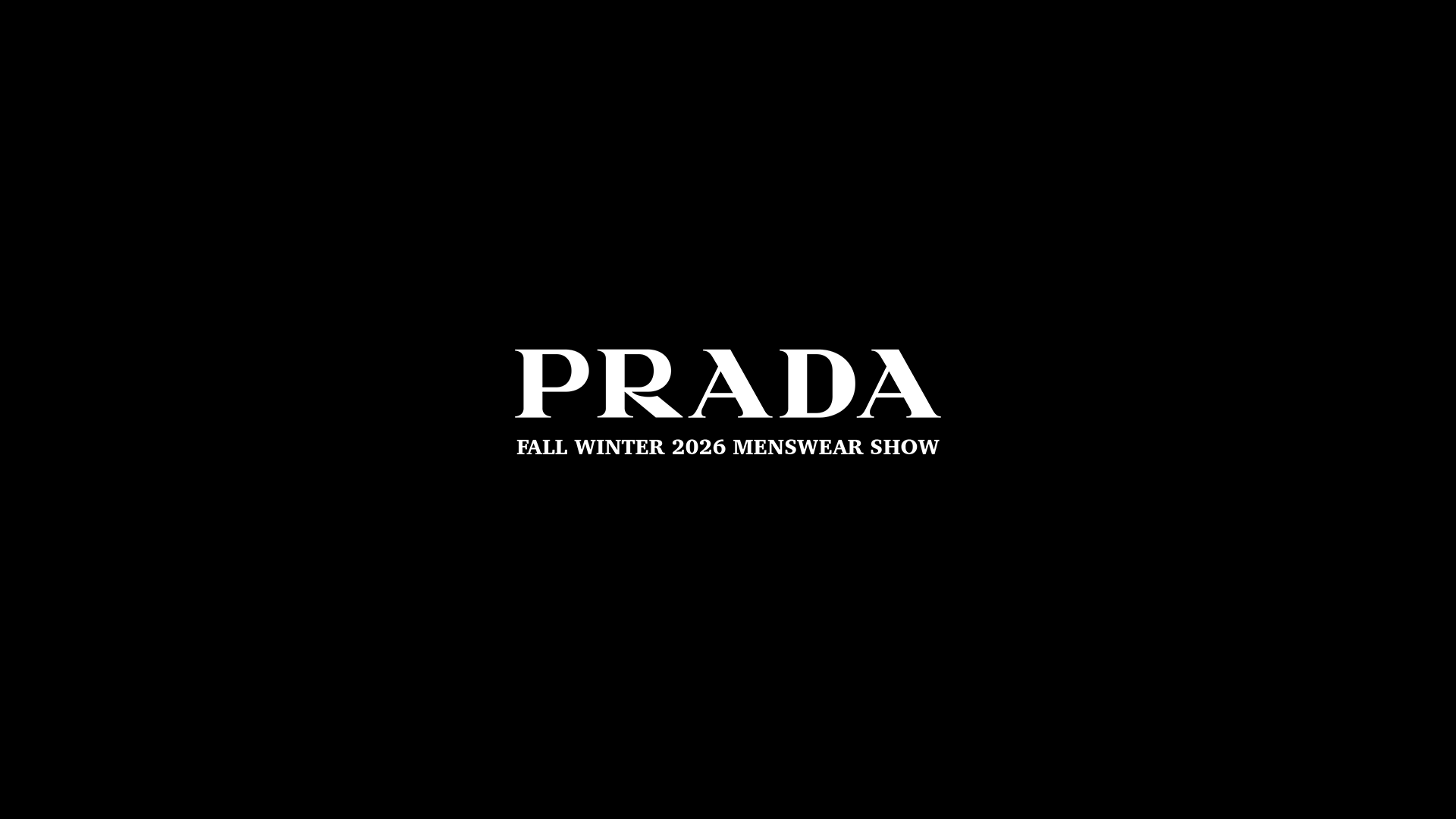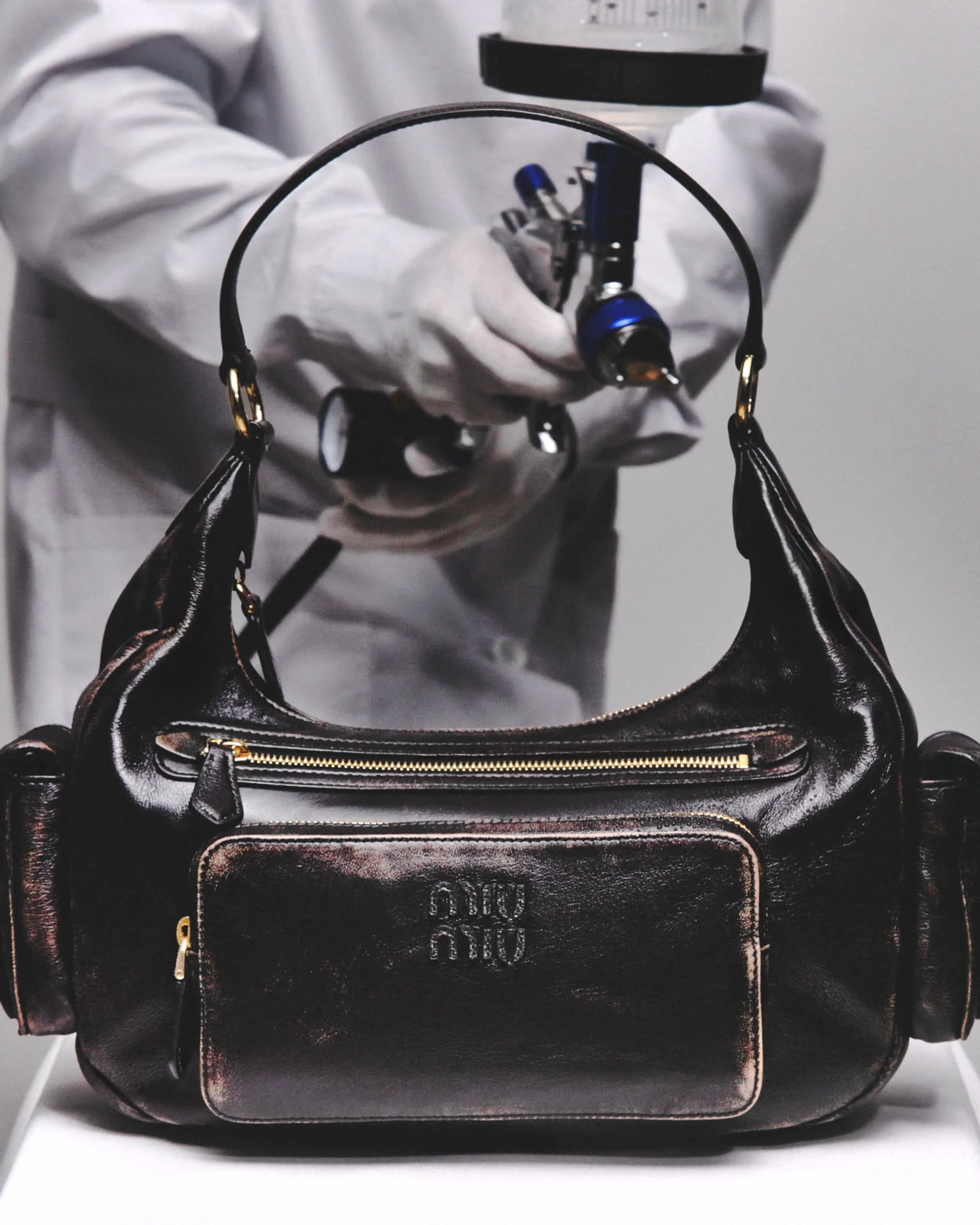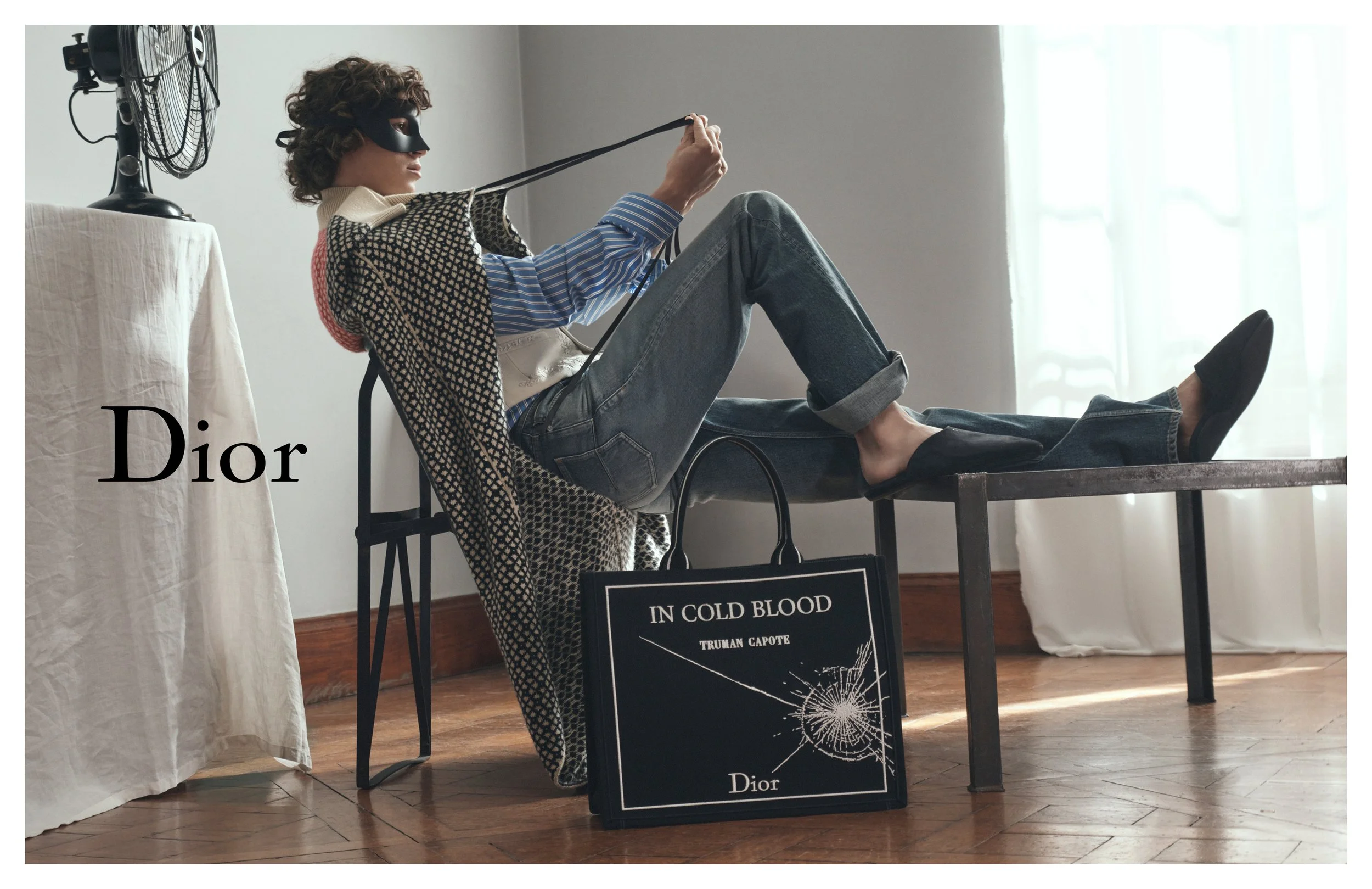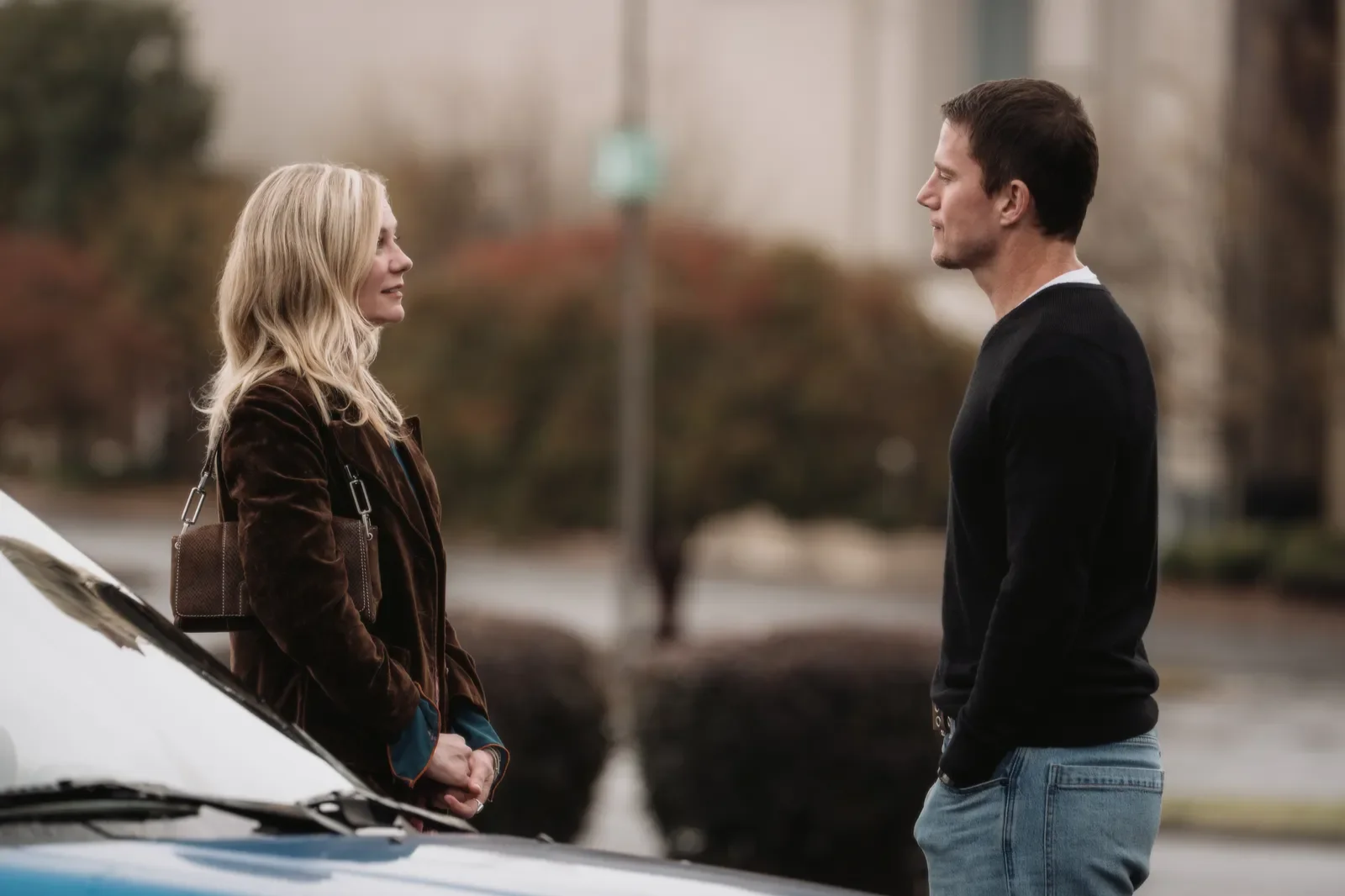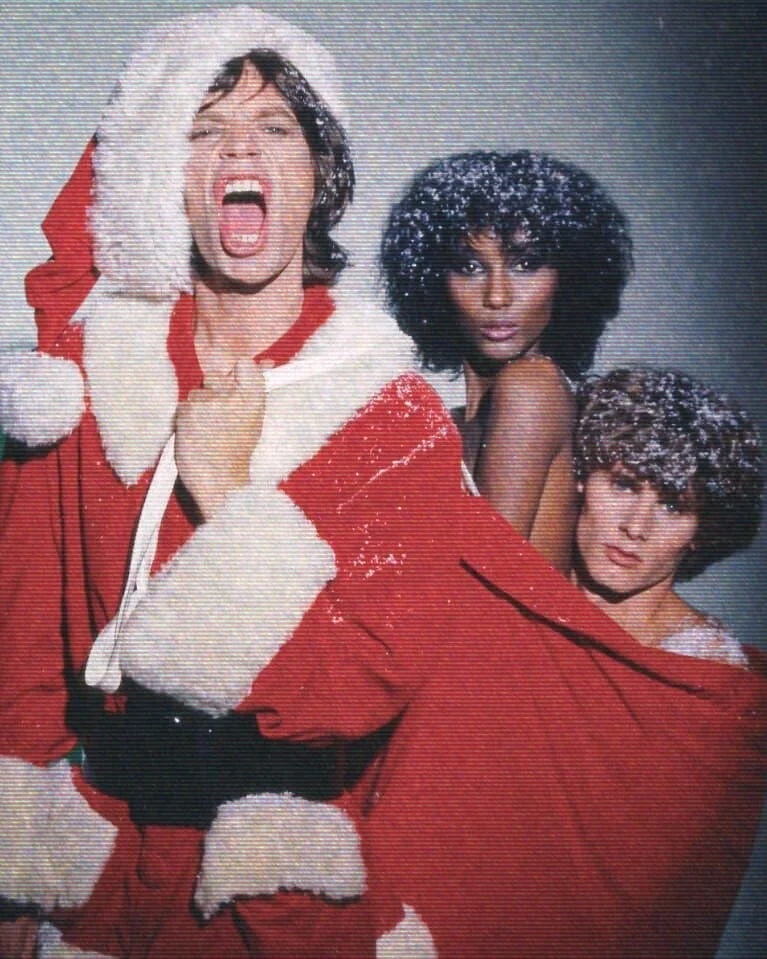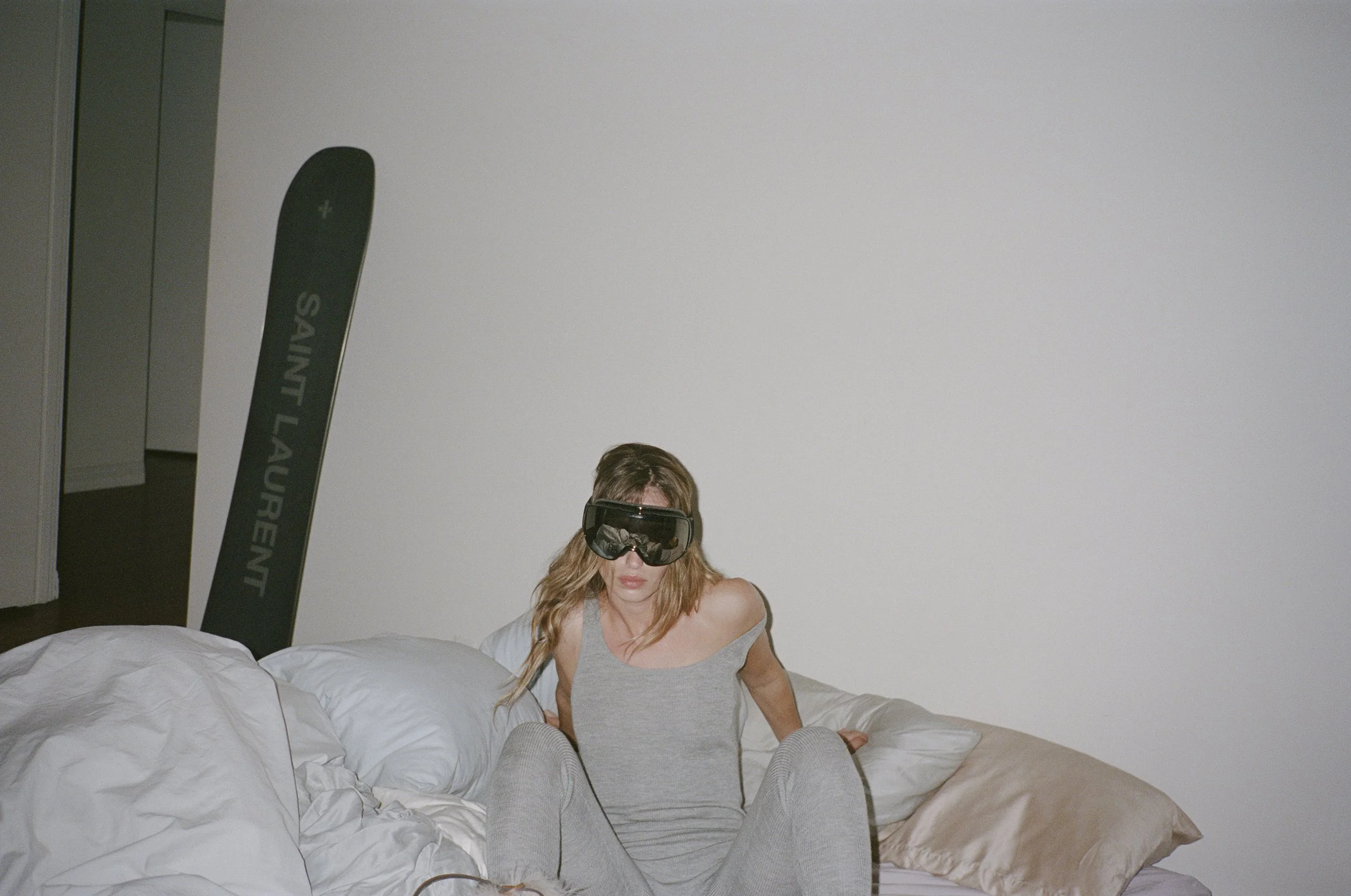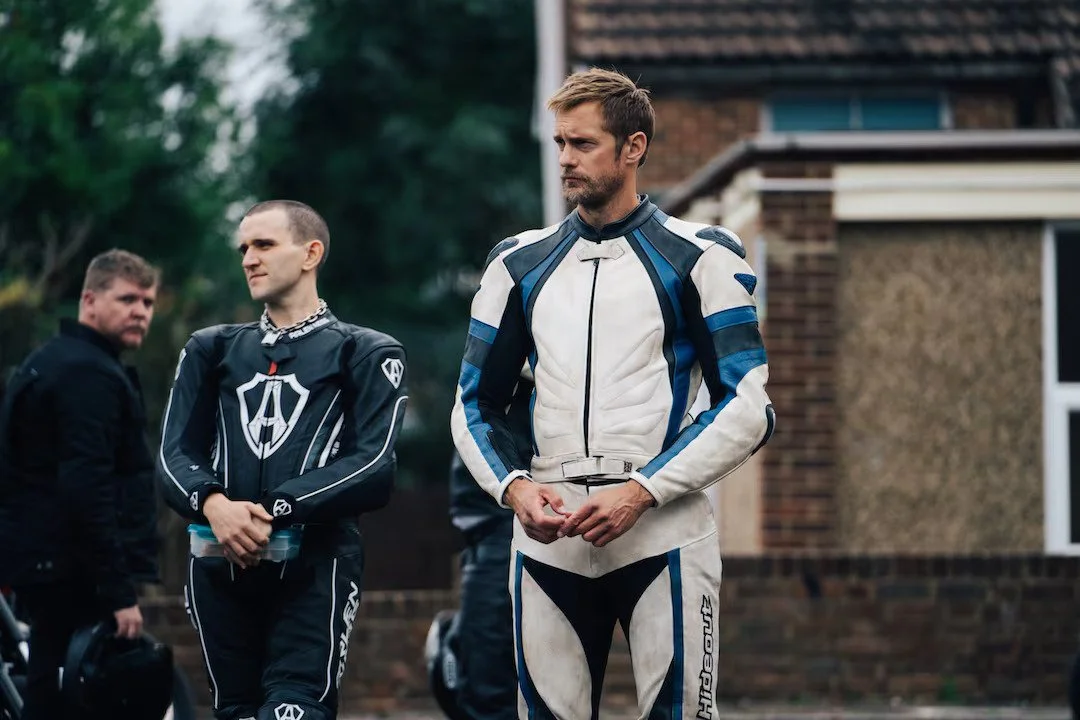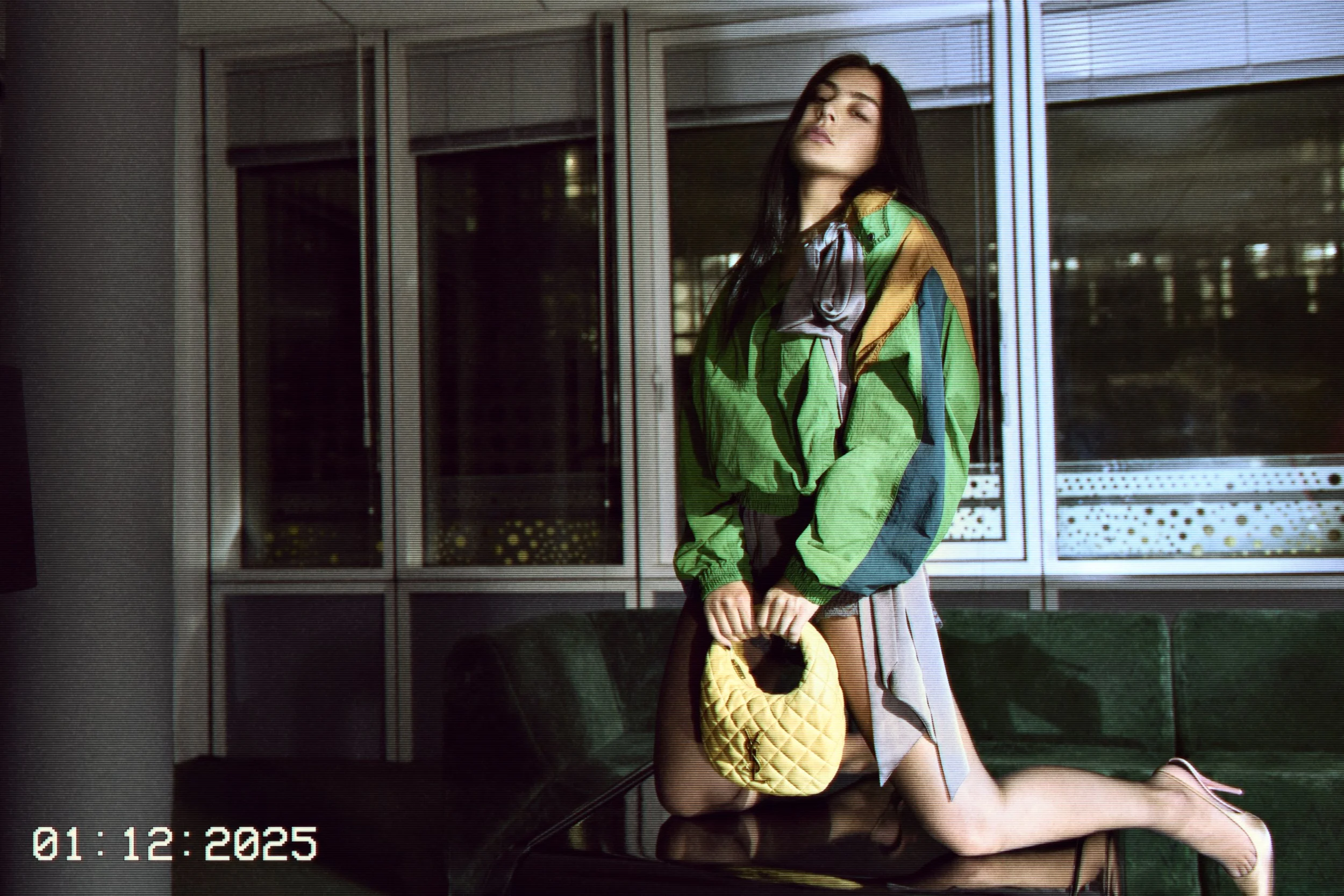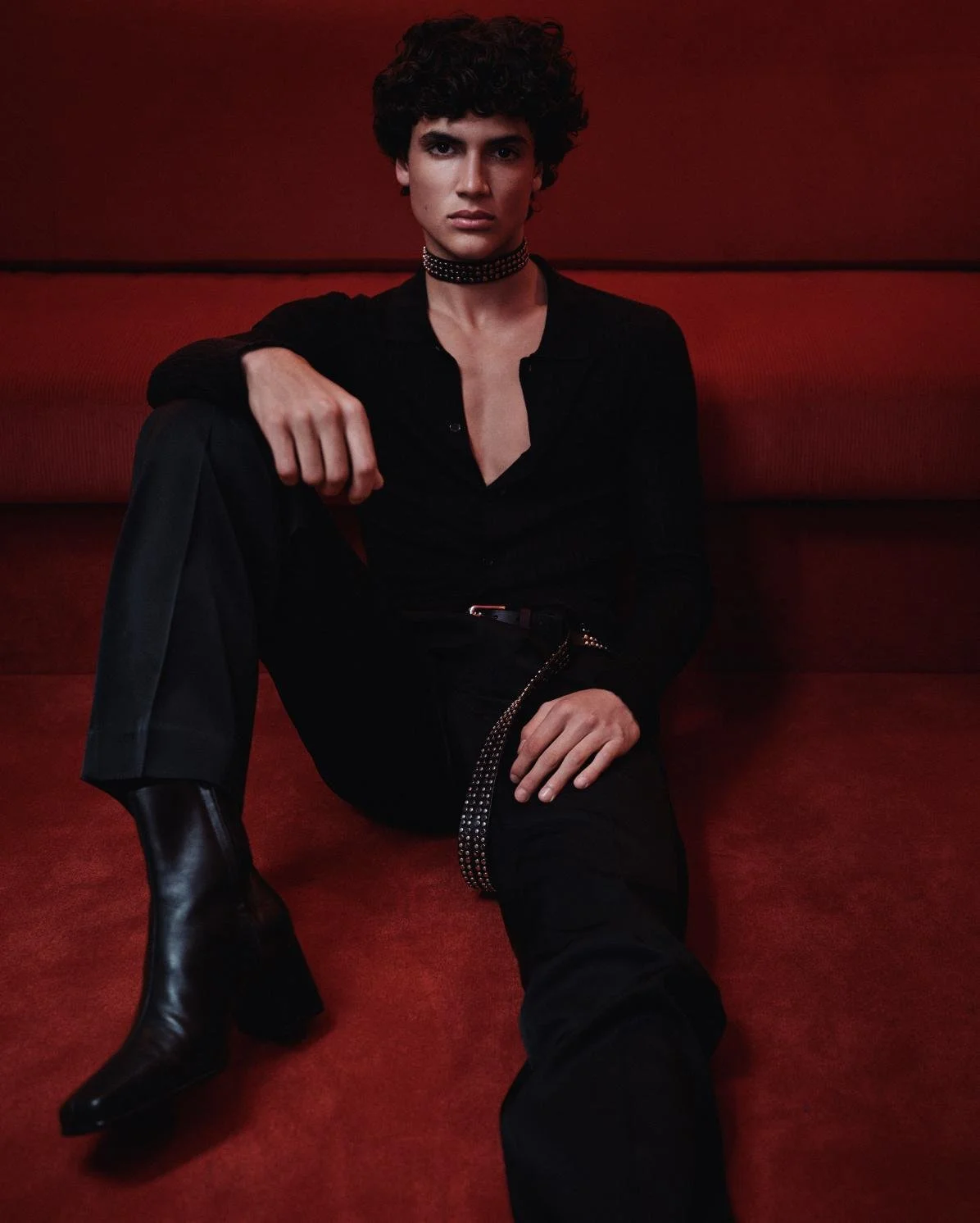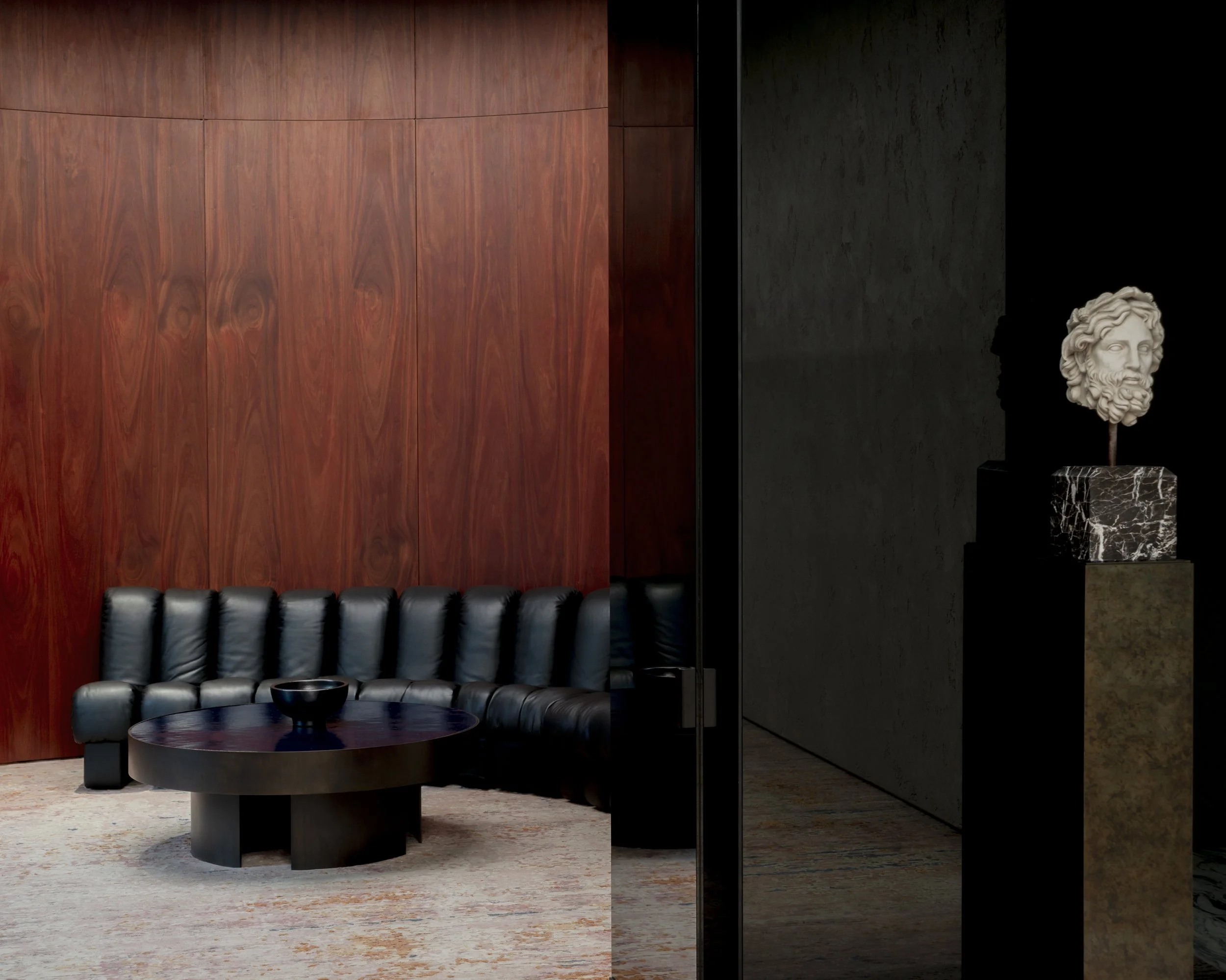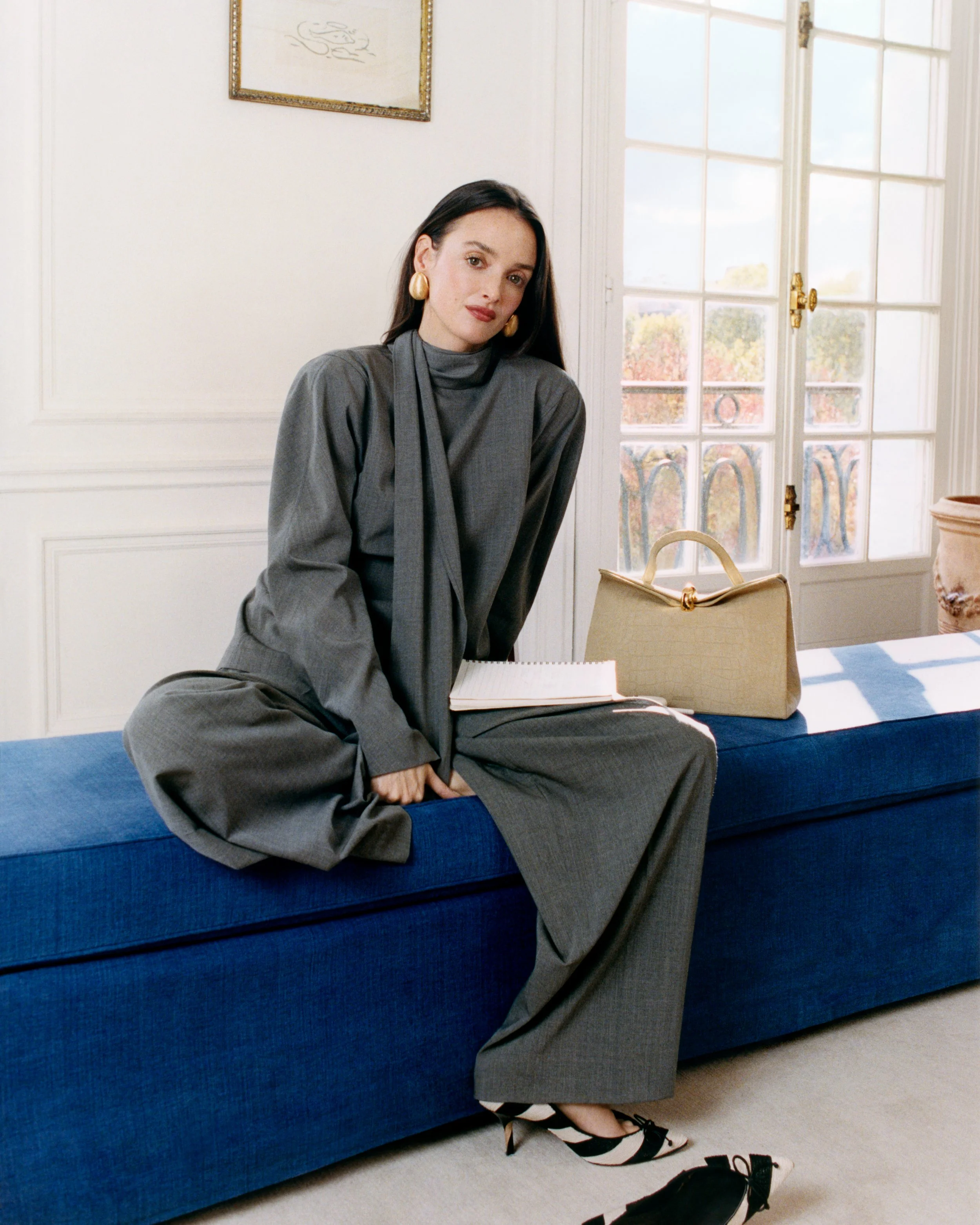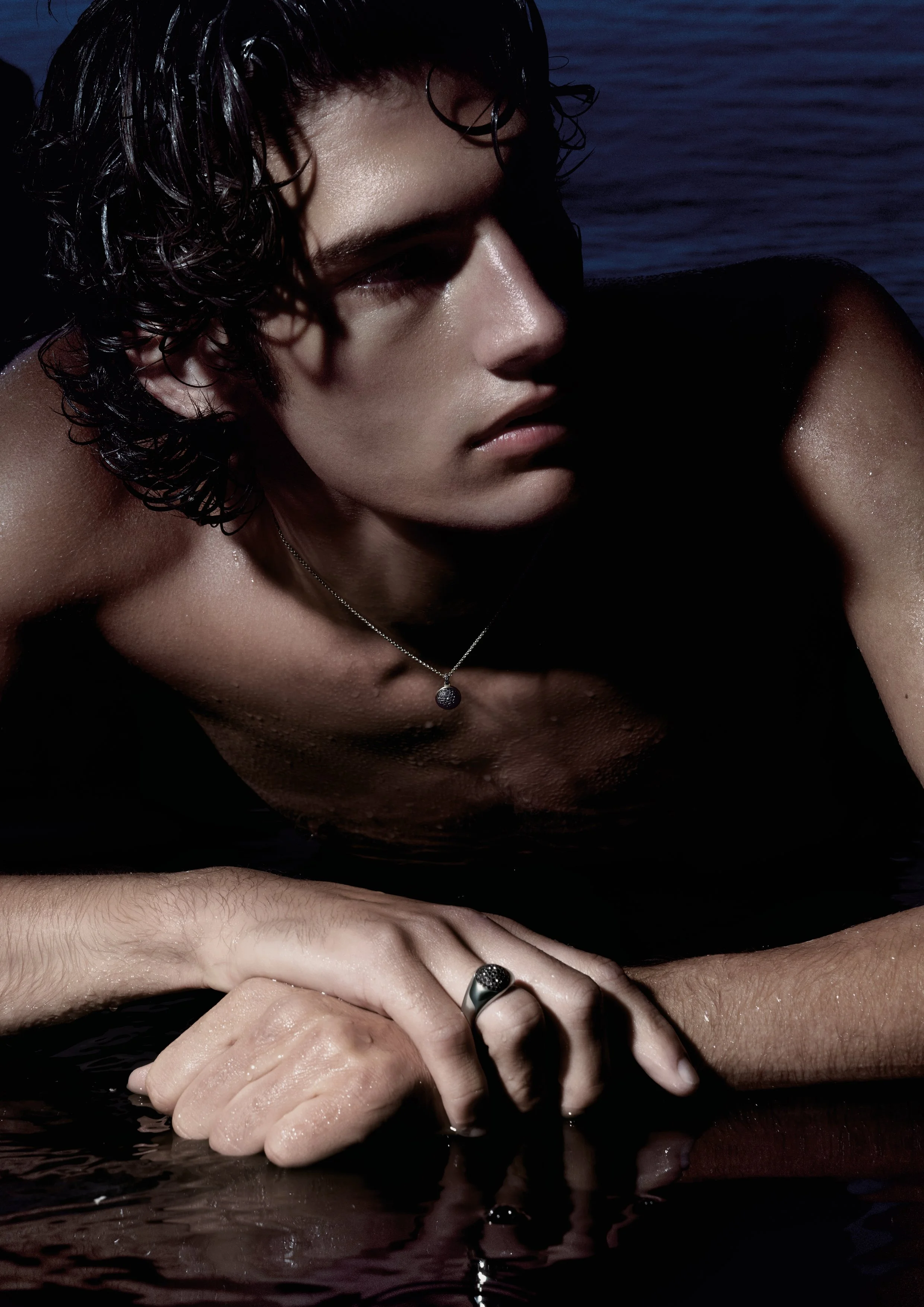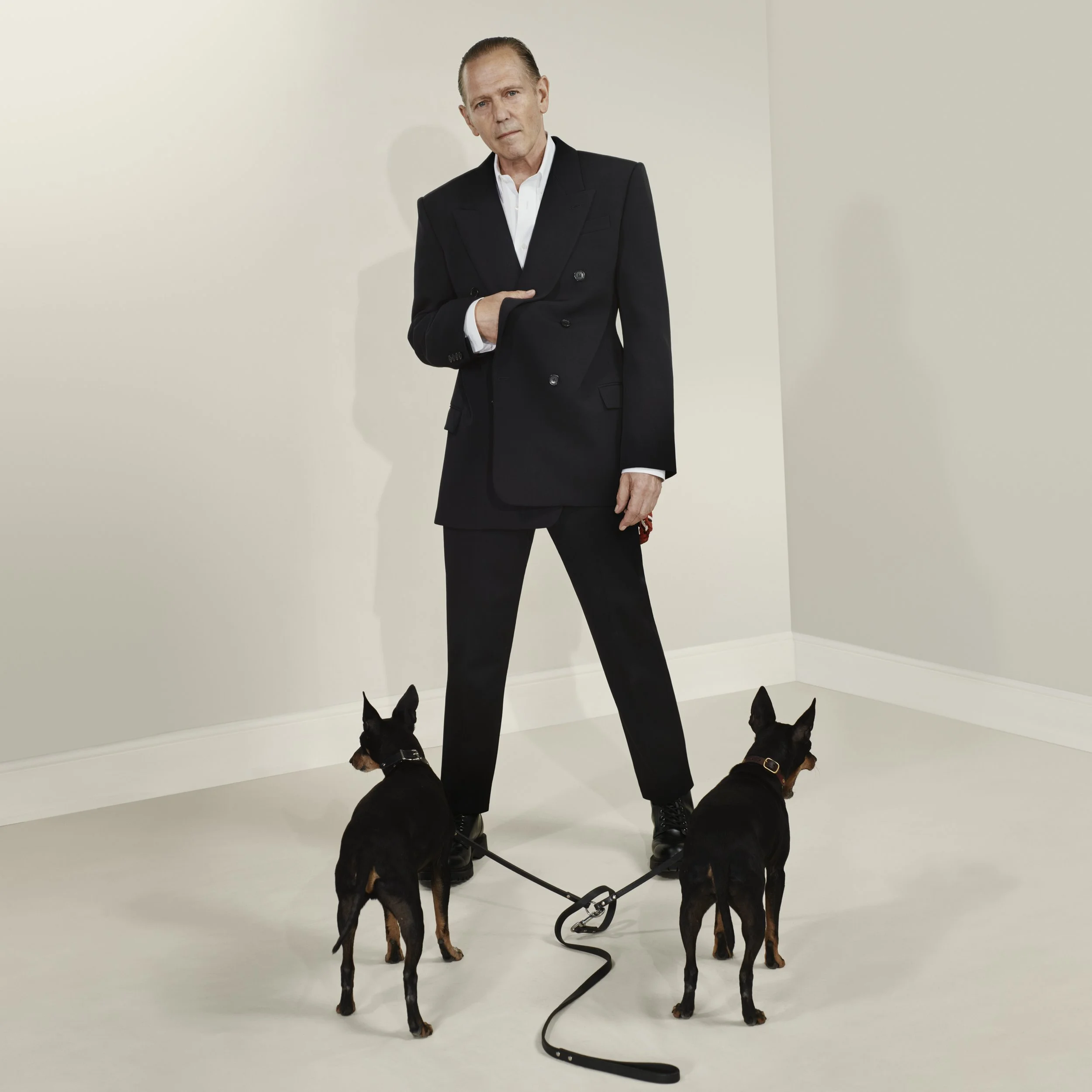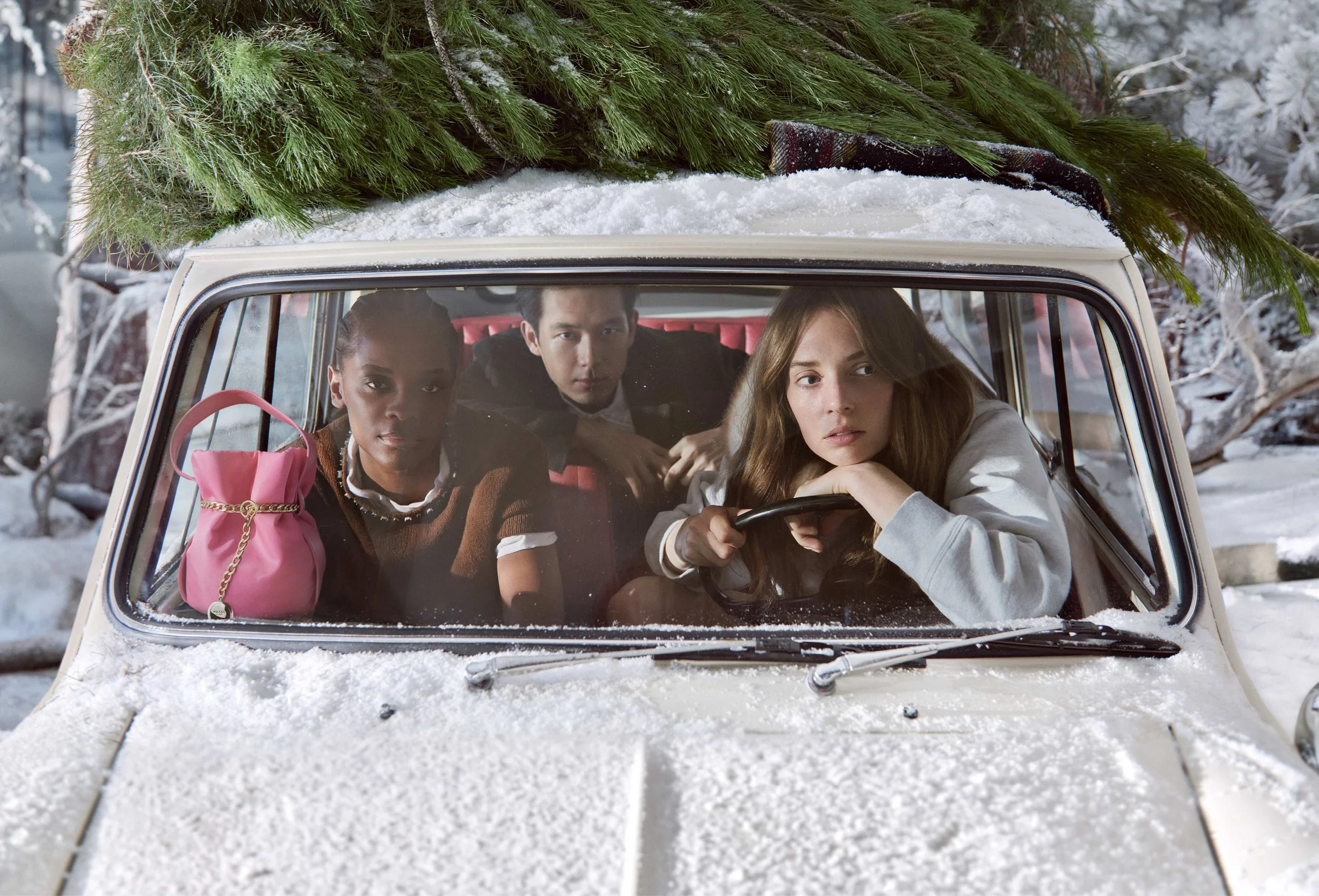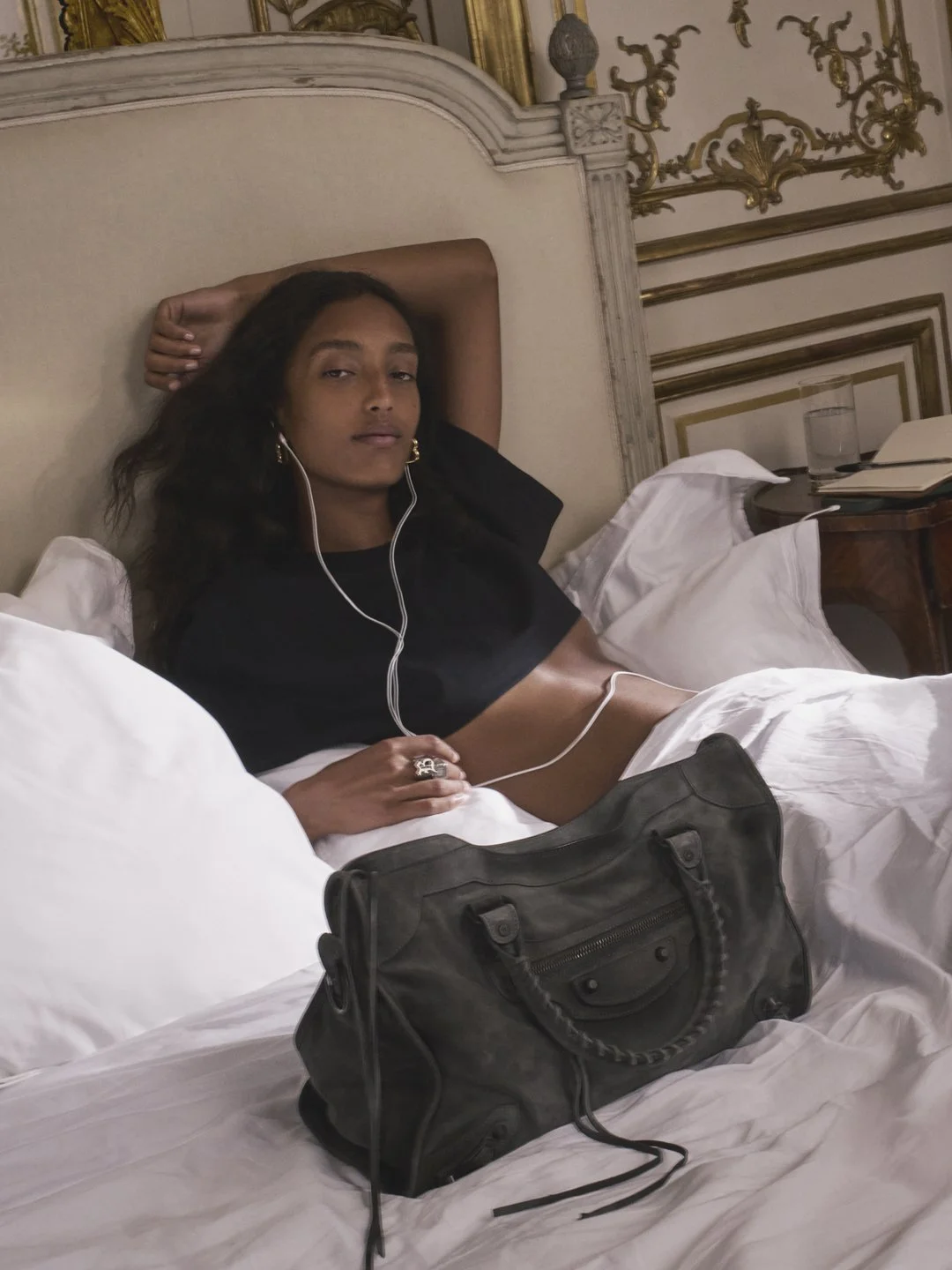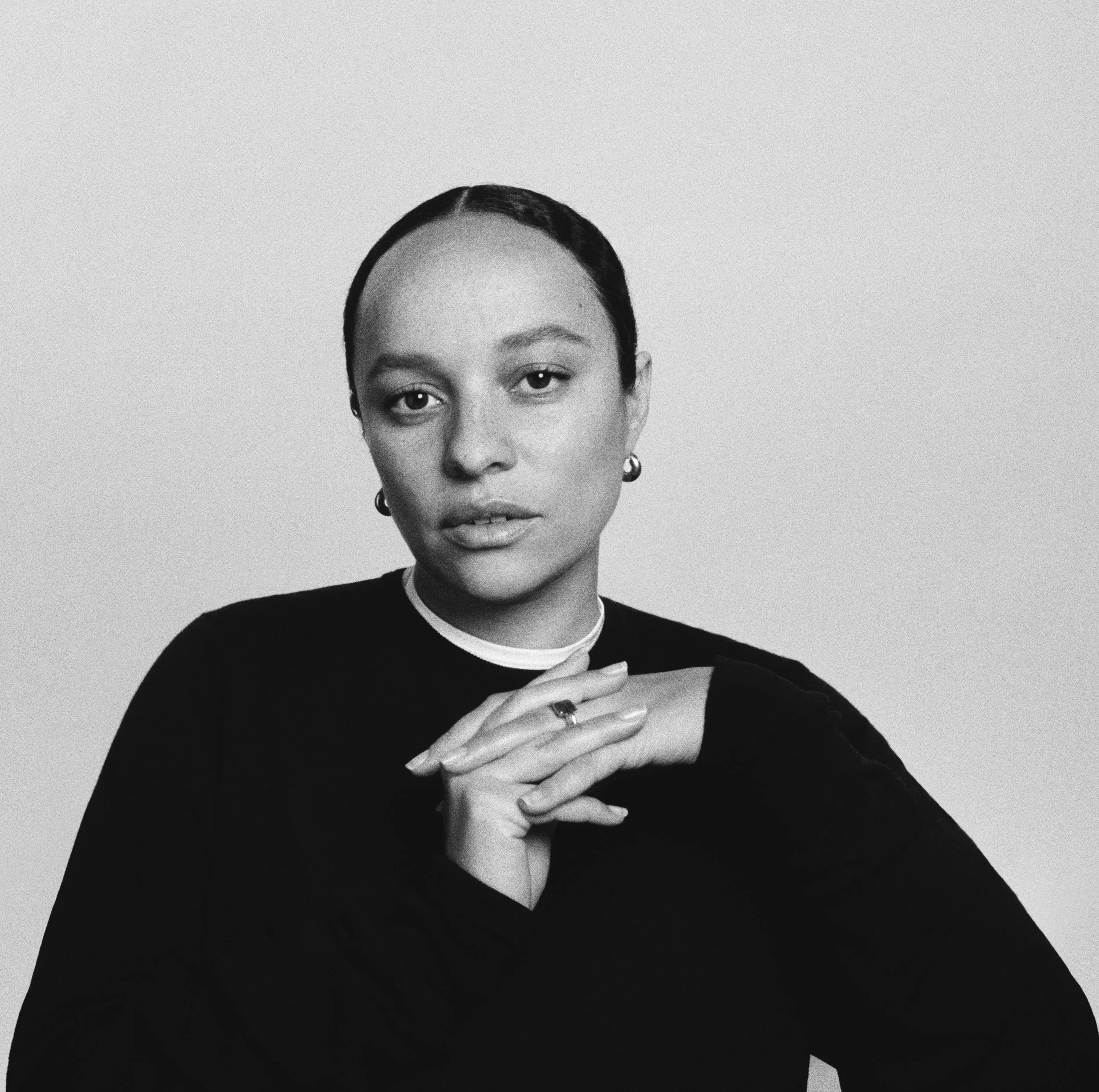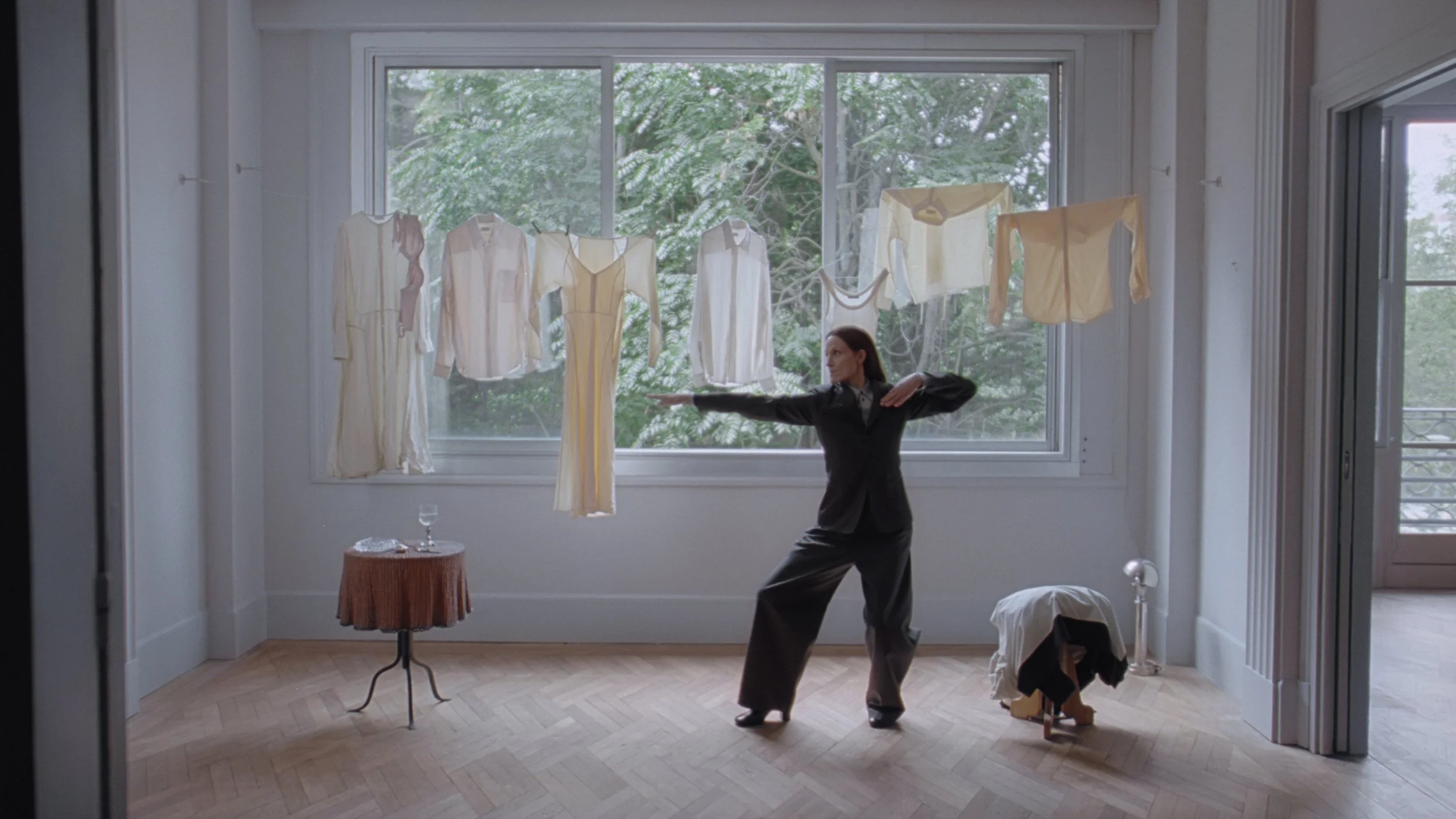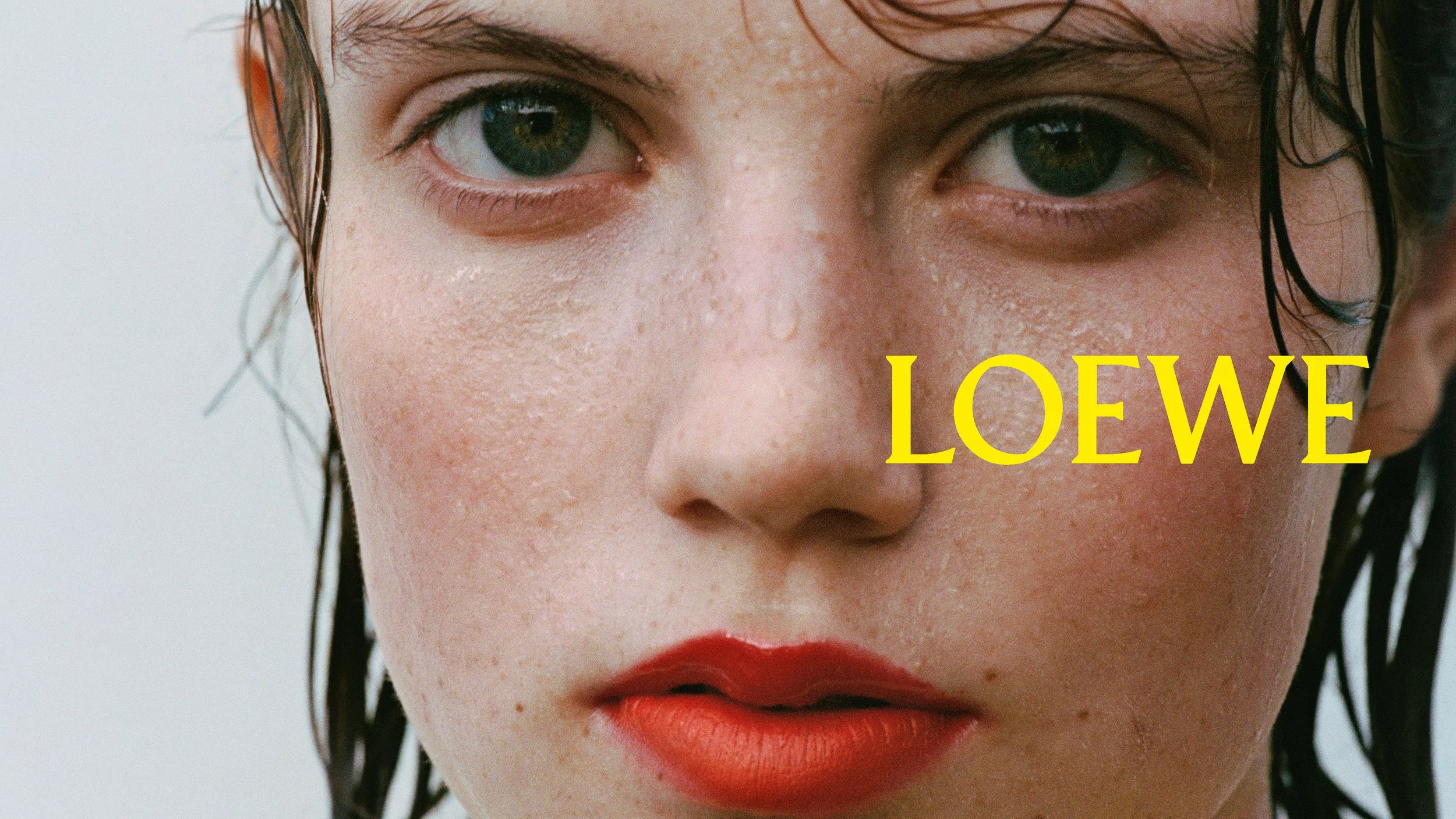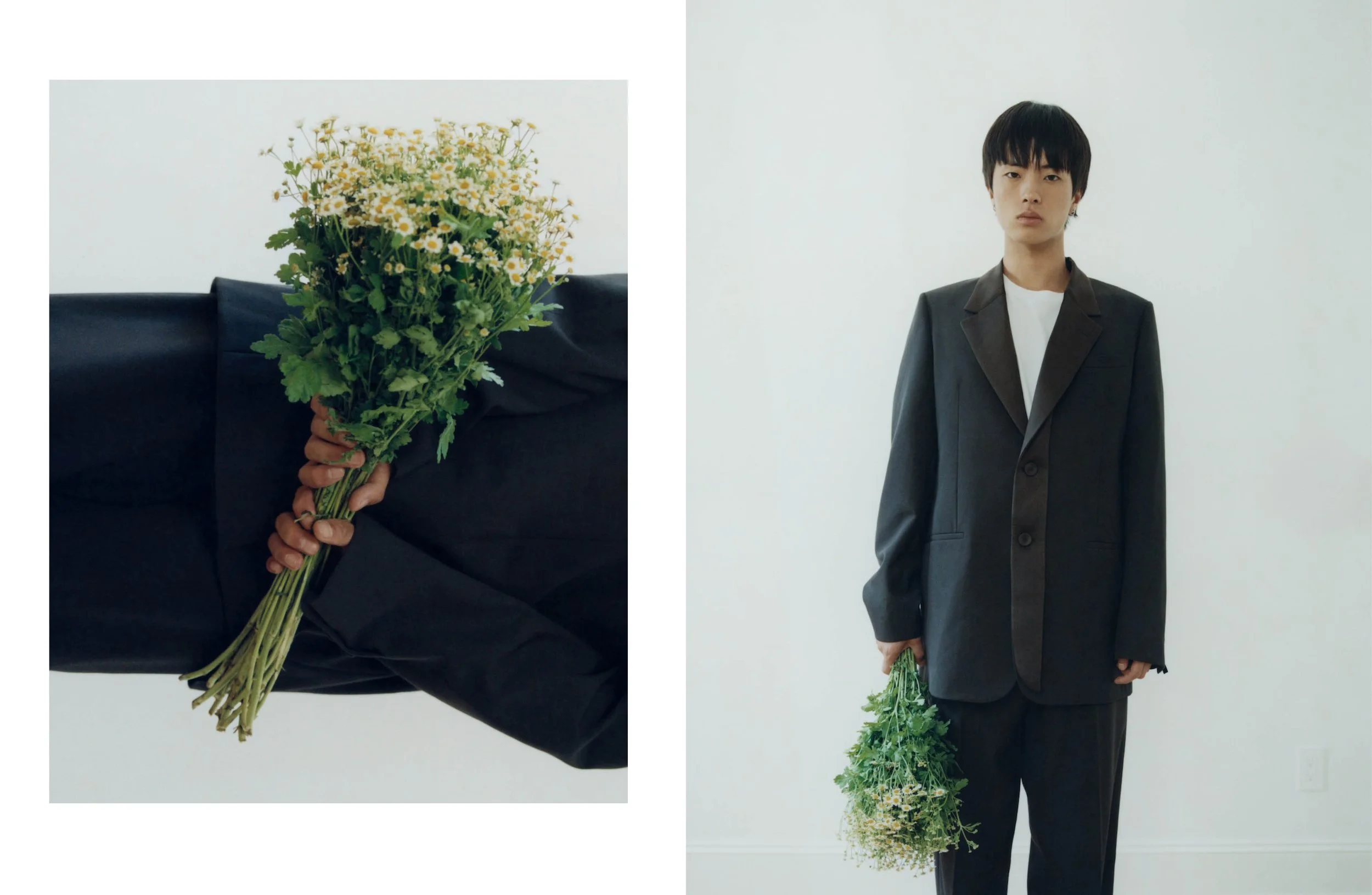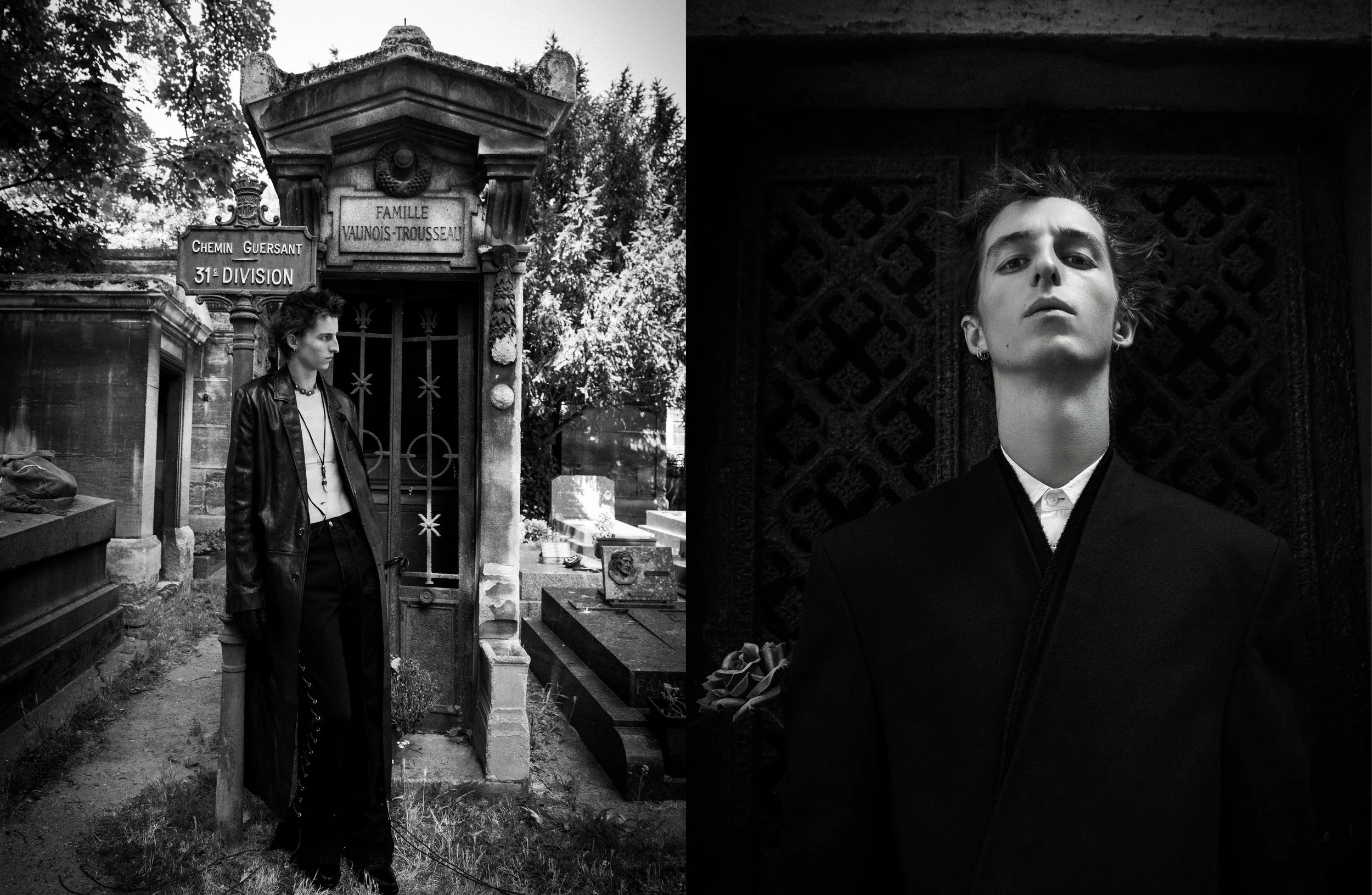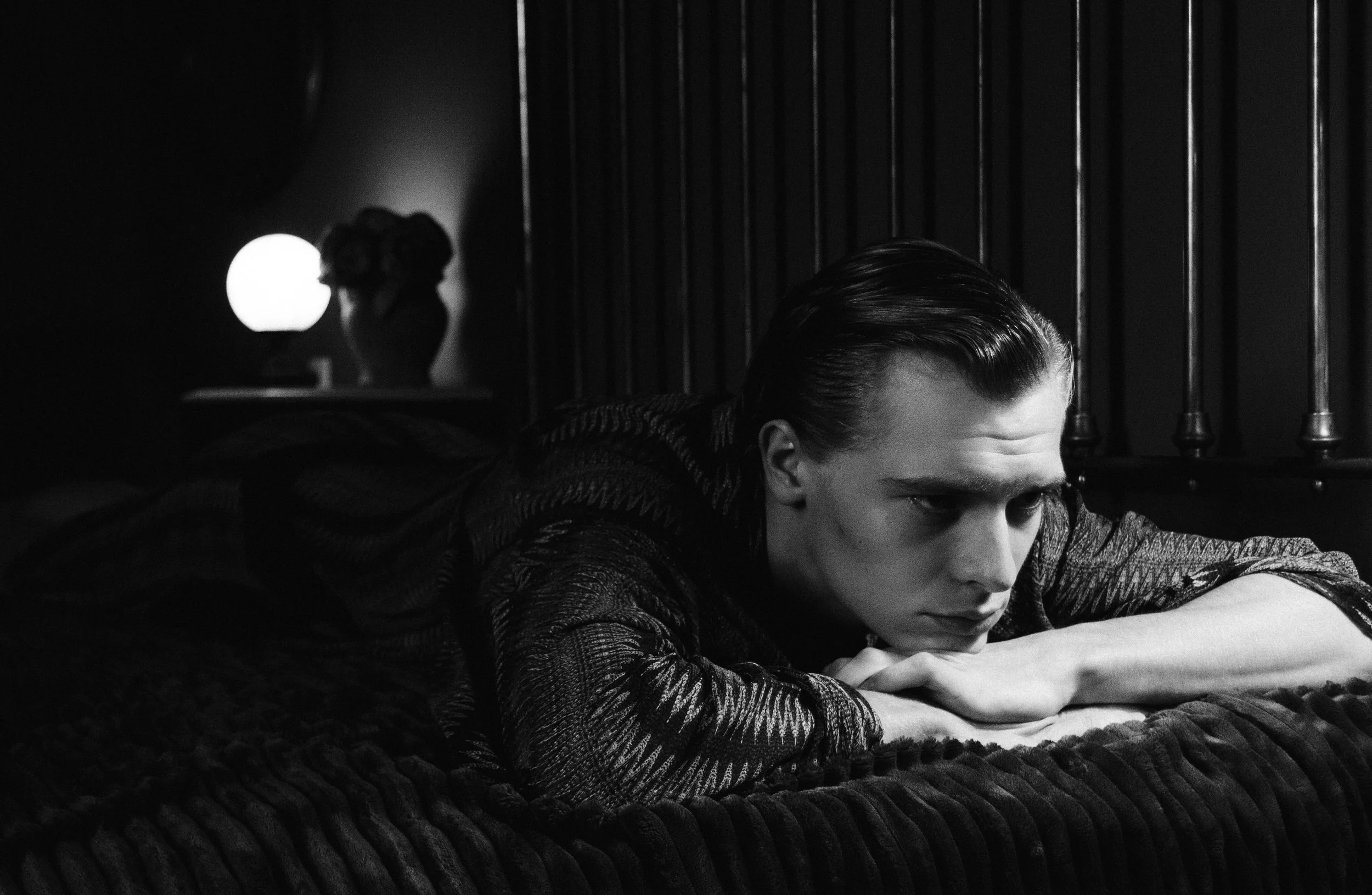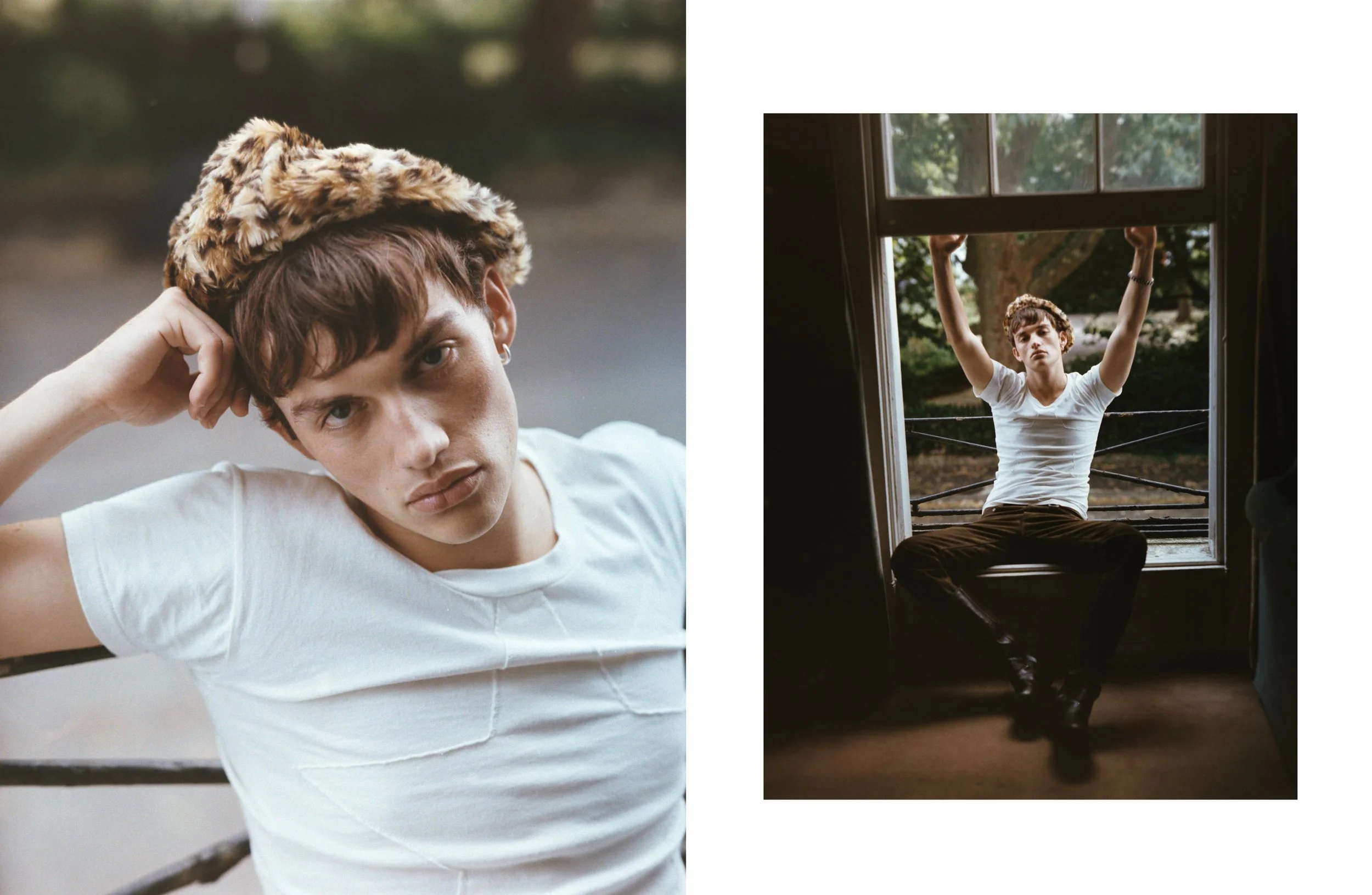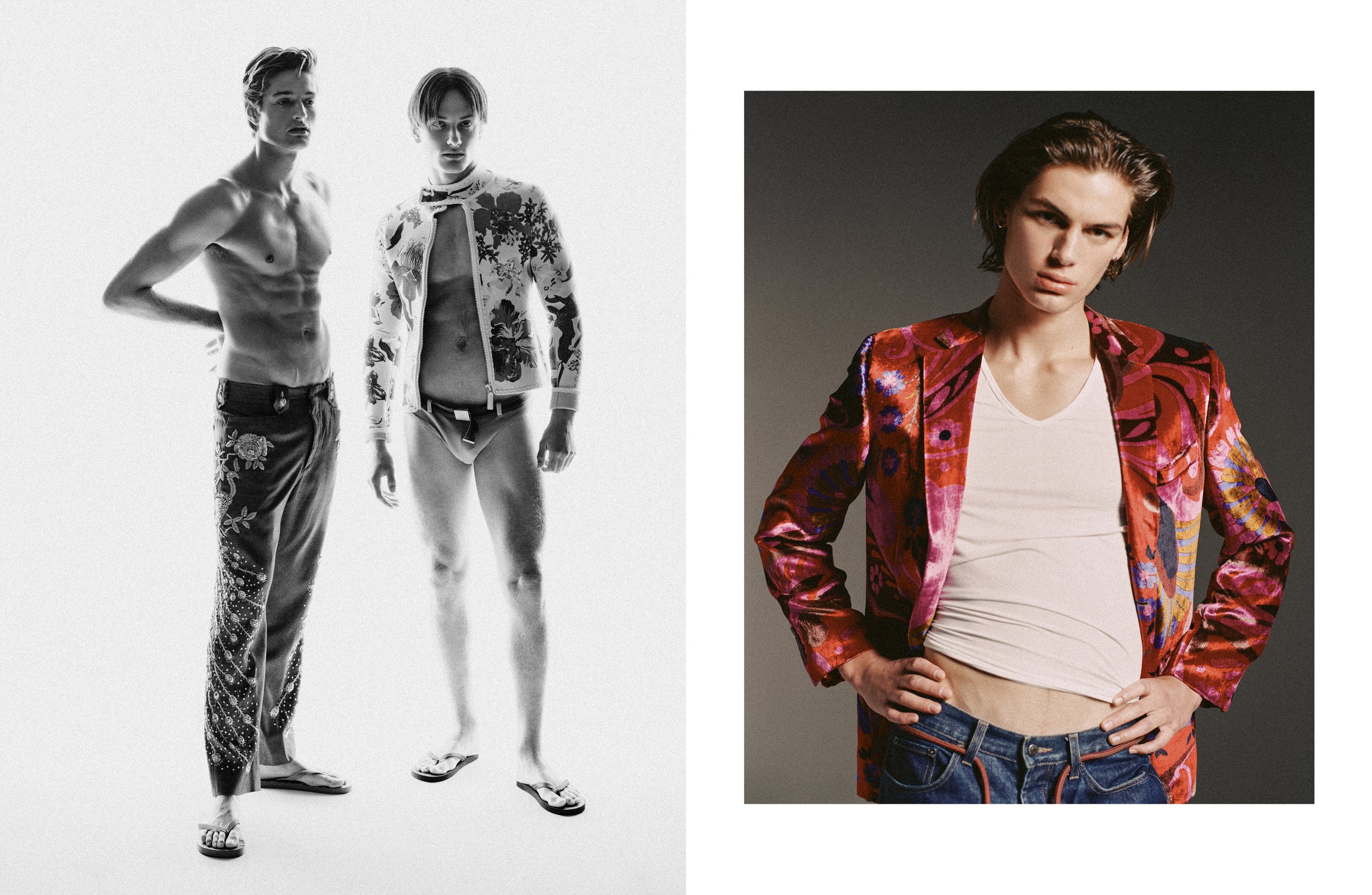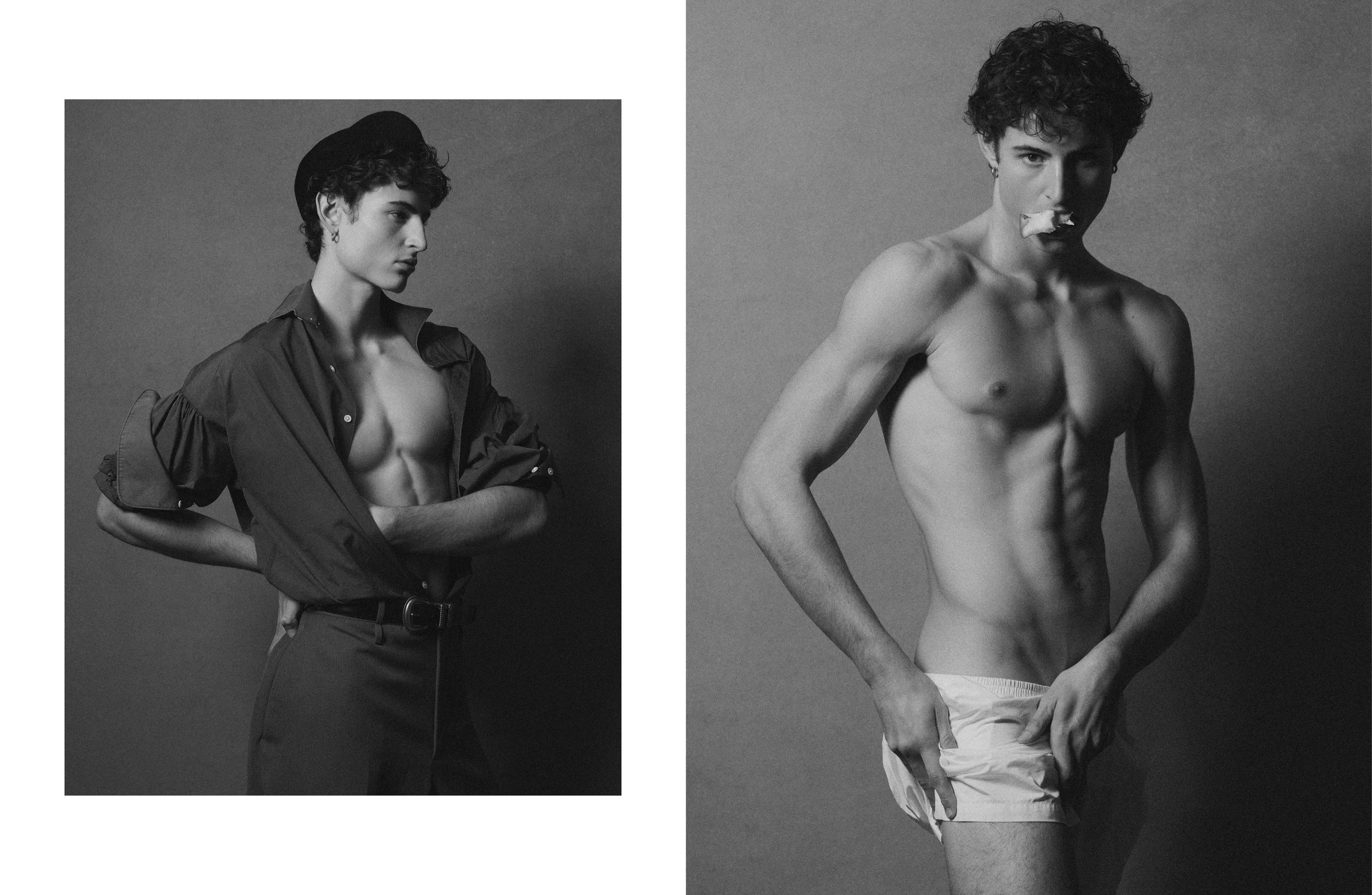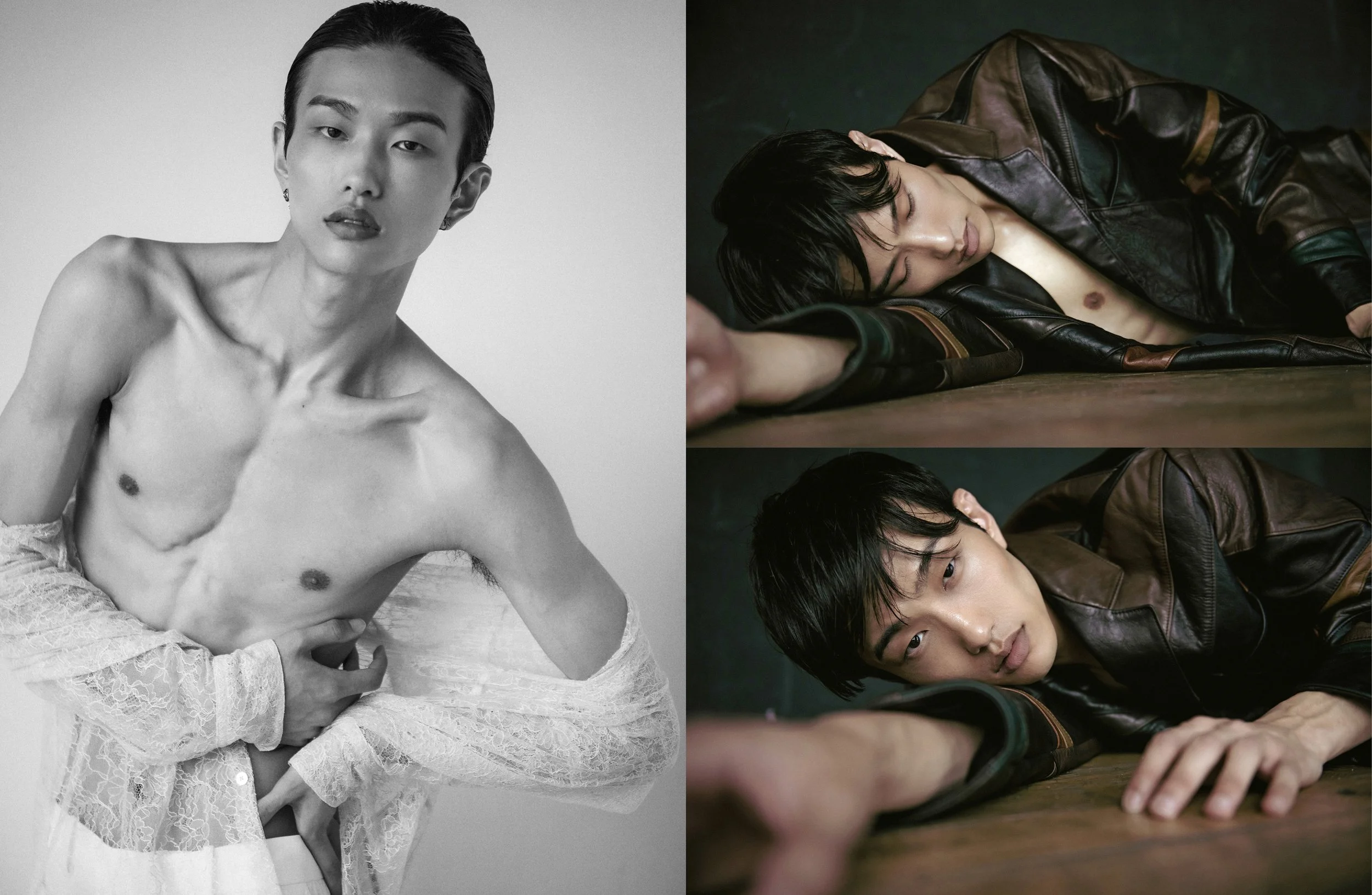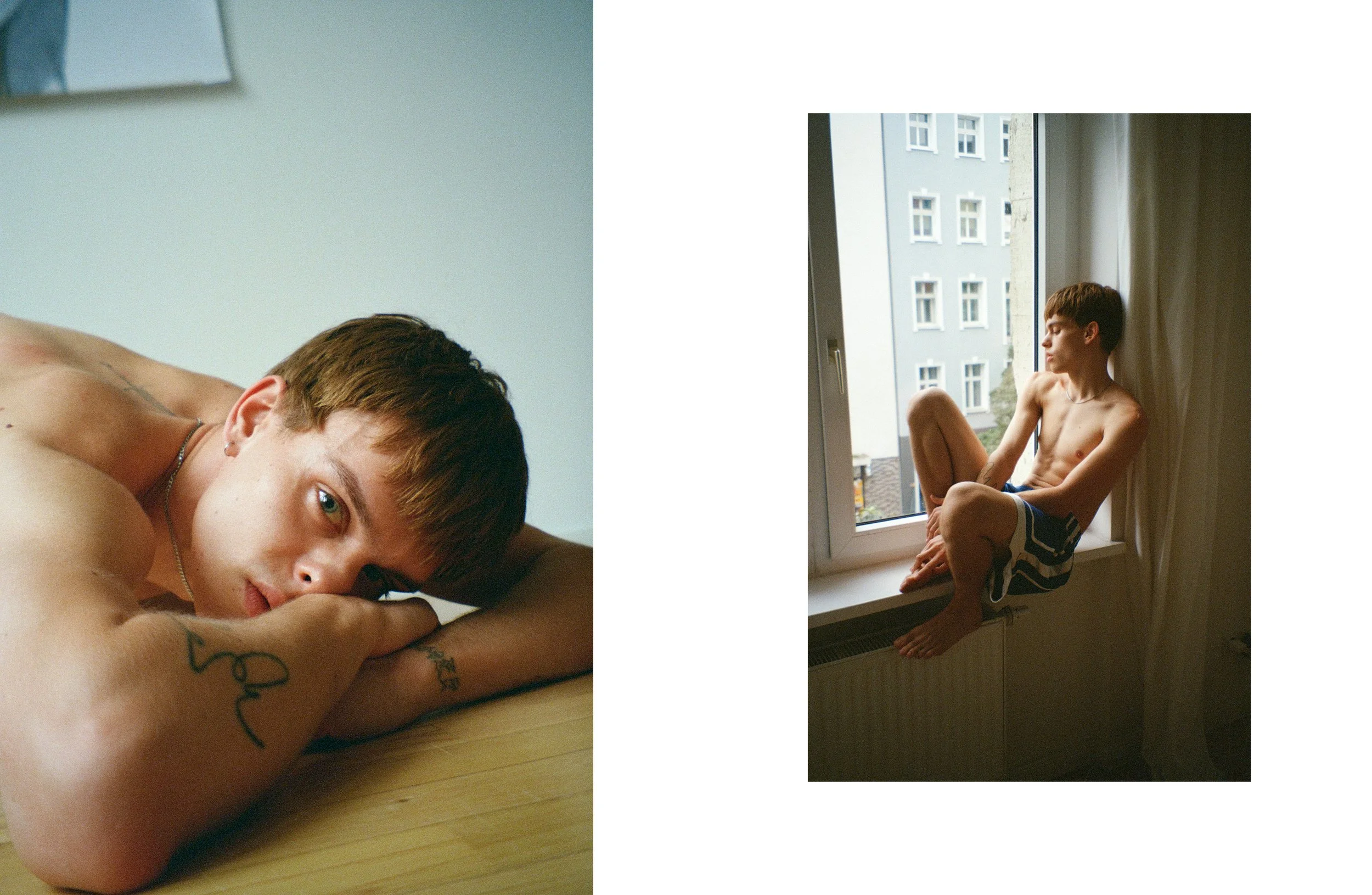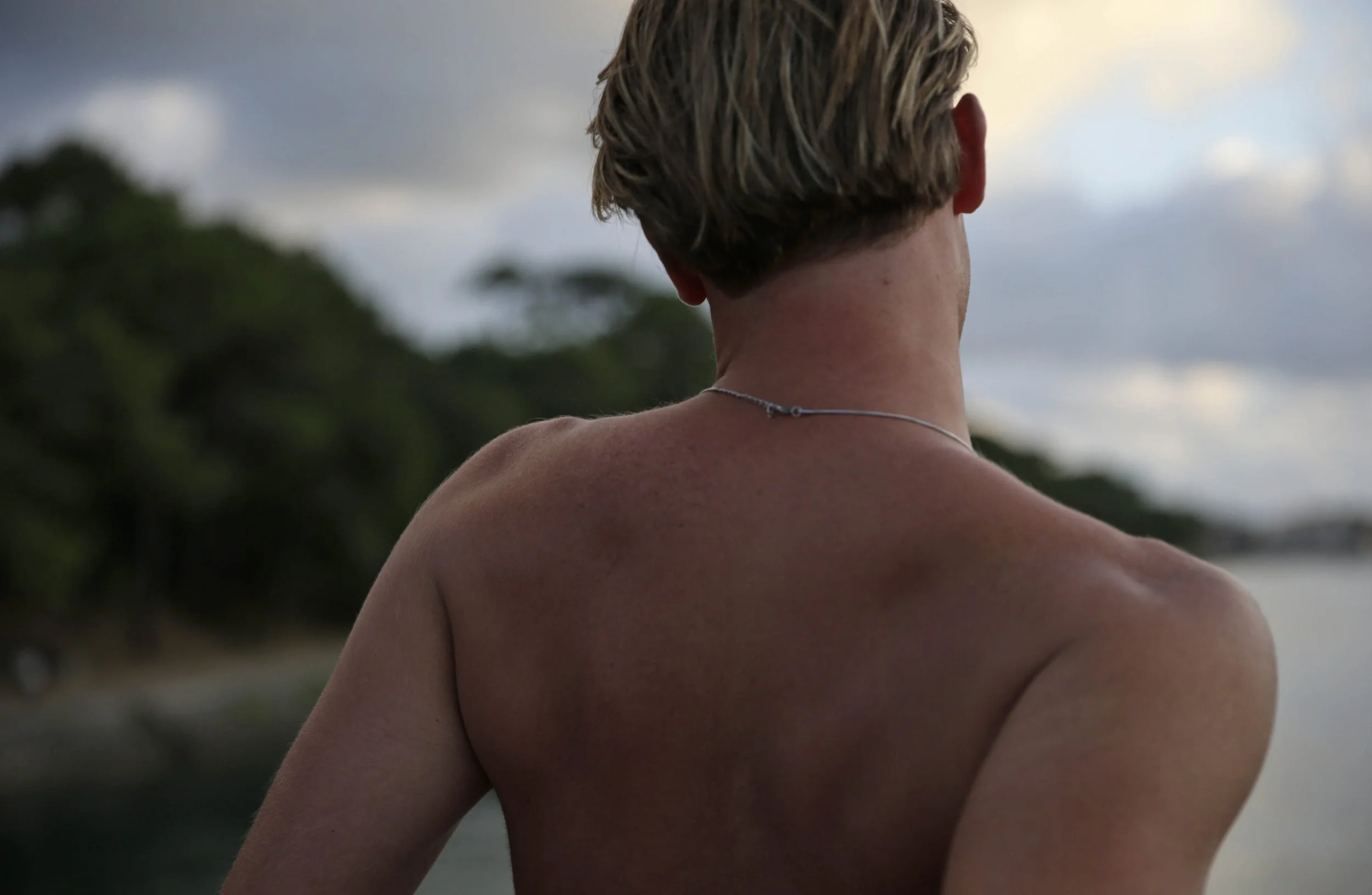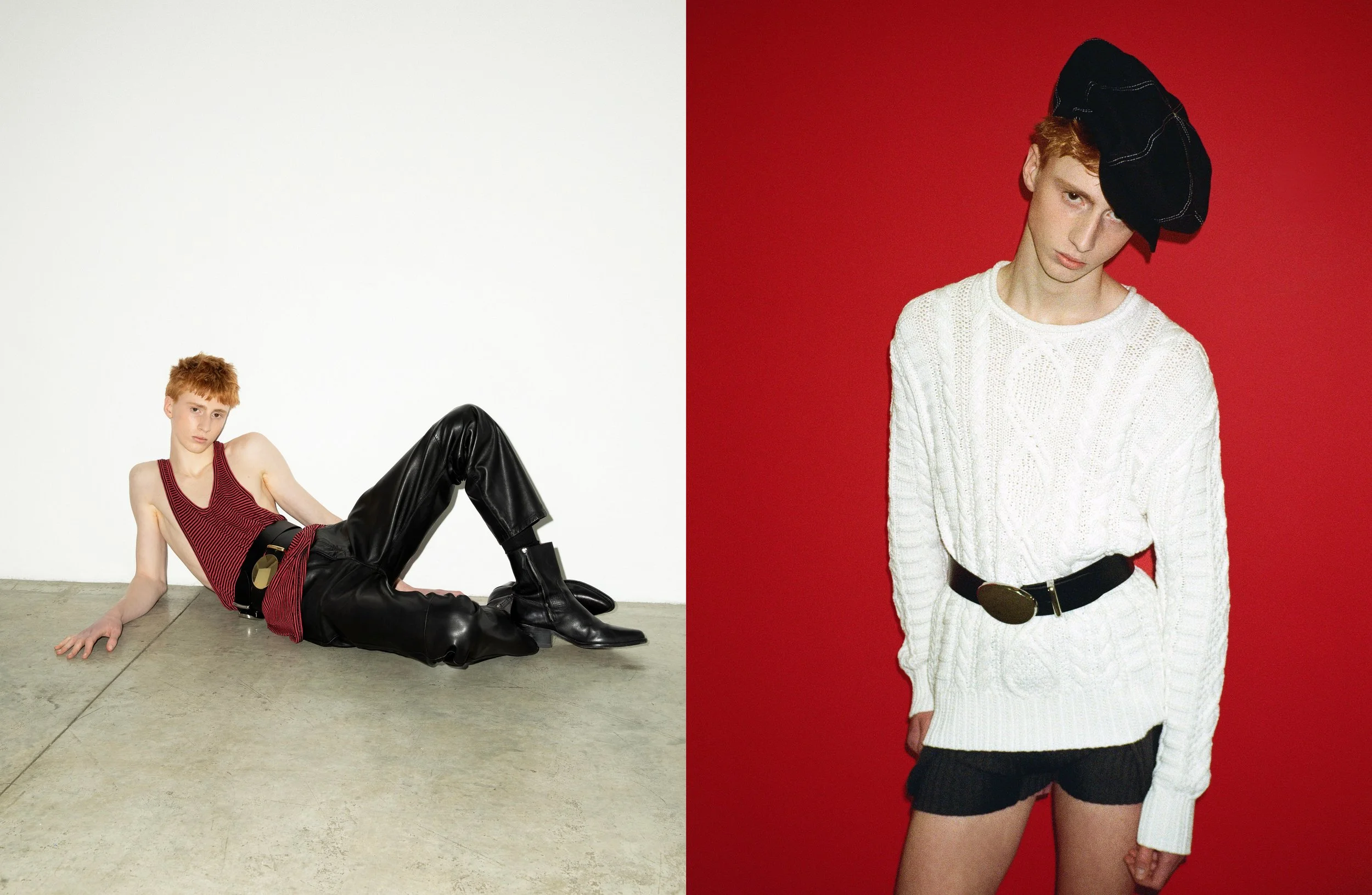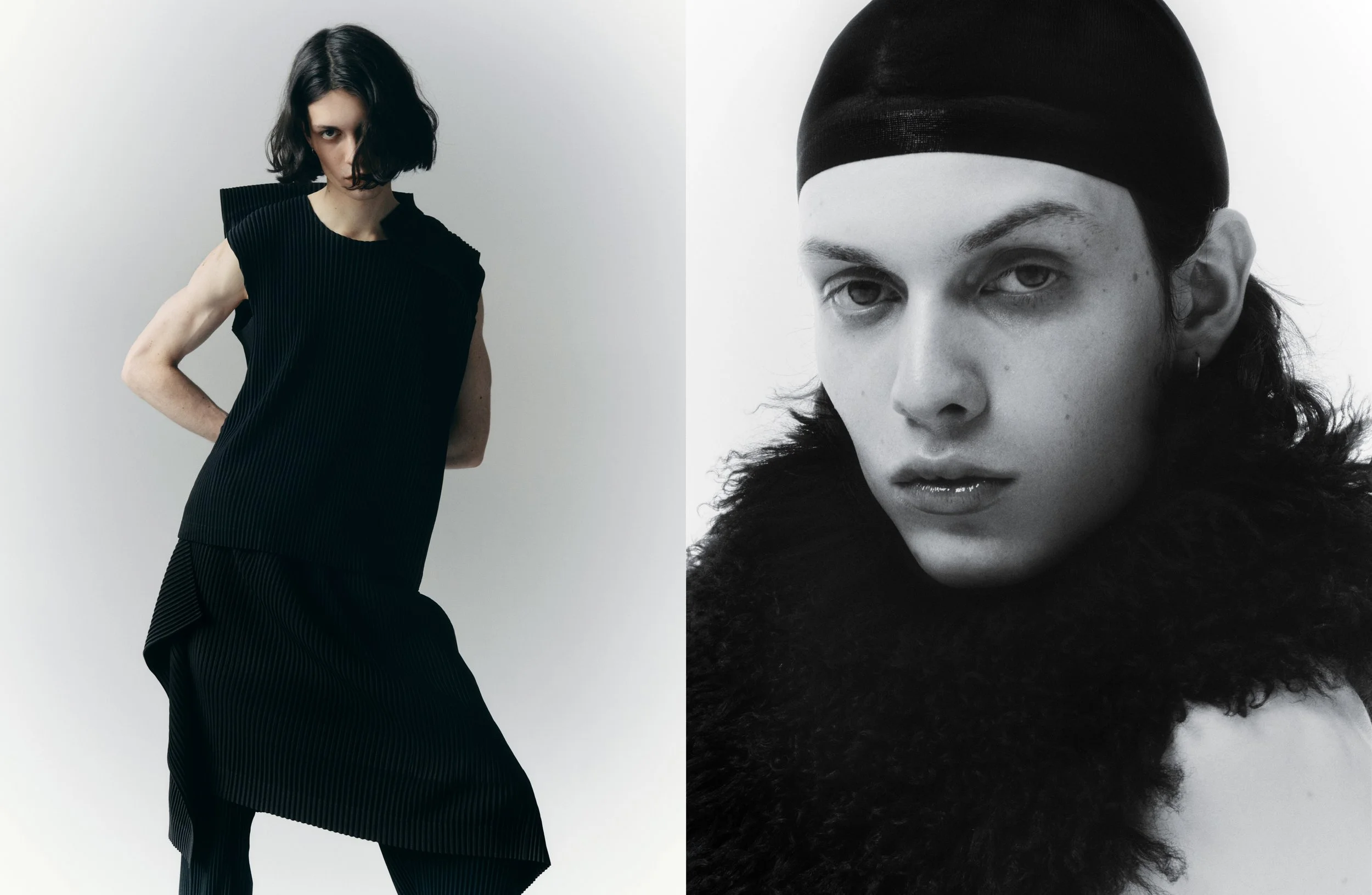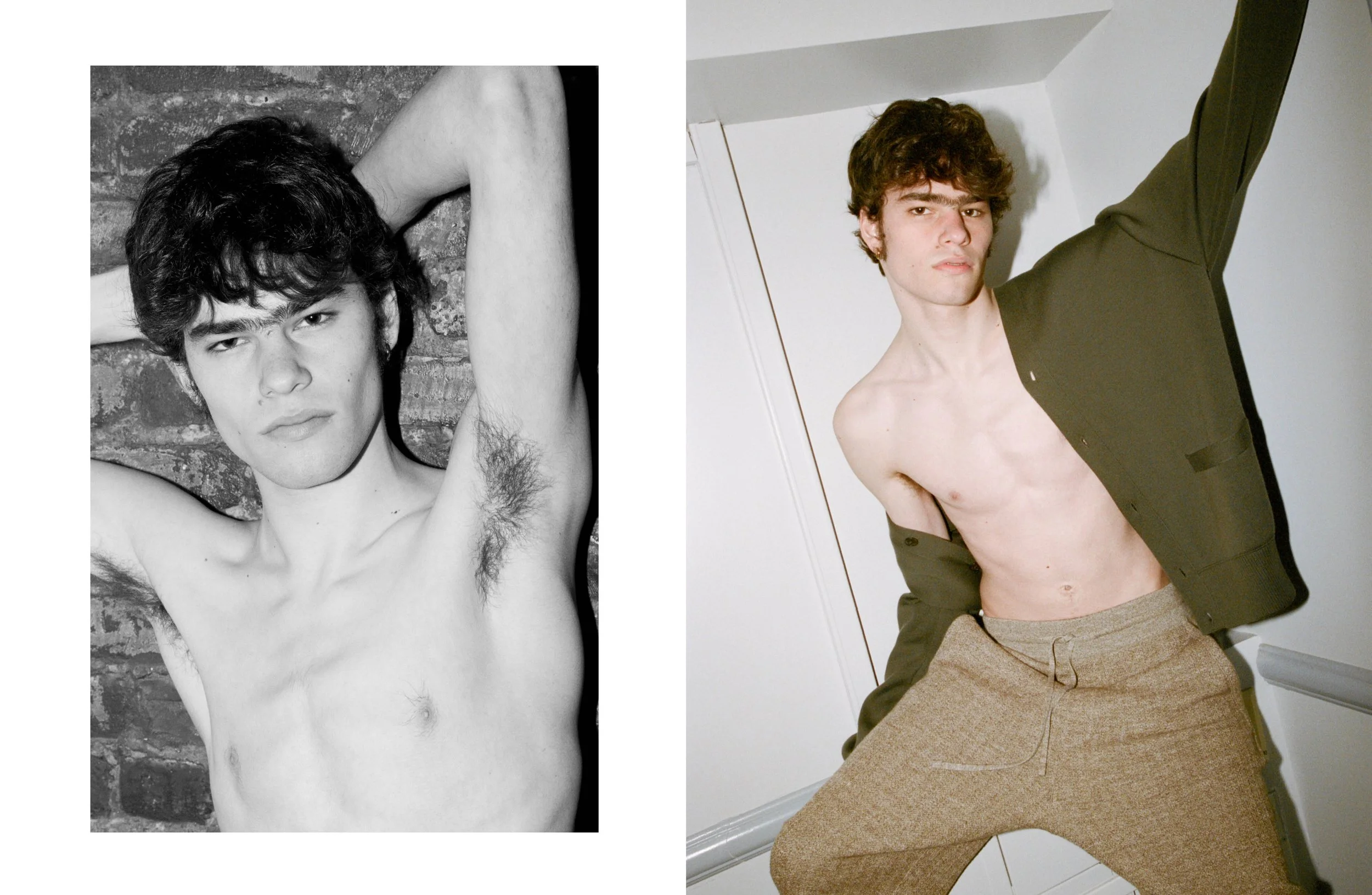CHRIS MASON IS NO STRANGER TO THE SPOTLIGHT. OVER THE PAST DECADE, HE HAS BEEN PART OF SOME OF THE MOST CULTURALLY RESONANT SHOWS, FROM RIVERDALE TO DOCTOR WHO. NOW, WITH HIS ROLE IN DUNE: PROPHECY, THE LIVERPOOL-BORN ACTOR STANDS ON THE BRINK OF A SEISMIC CAREER MOMENT. STEPPING INTO THE VAST AND STORIED SCI-FI UNIVERSE, HE TACKLES THE LAYERED ROLE OF KEIRAN—A SWORD MASTER FORGED BY A PAST AS COMPLEX AS THE DUNE MYTHOLOGY ITSELF. YET, DESPITE THE ALIEN WORLD DUNE IMAGINES, CHRIS MAKES IT DEEPLY HUMAN. SO MUCH SO THAT HE BRINGS HIS OWN LIVERPOOL ACCENT TO KEIRAN—A CREATIVE CHOICE THAT NOT ONLY DISTINGUISHES HIS CHARACTER BUT GROUNDS THE FUTURISTIC EPIC IN A SENSE OF AUTHENTICITY, THAT’S THE ESSENCE OF CHRIS’S APPEAL: HIS ROLES ARE NEVER MERE CHARACTERS BUT FULLY REALIZED PEOPLE, ALIVE WITH DEPTH, EMPATHY, AND HUMANITY. WE SAT DOWN WITH THE ACTOR TO DISCUSS HIS COMEDIC BEGINNINGS, HIS JOURNEY INTO WRITING, AND HOW HE BREATHES LIFE INTO EVERY STORY HE TOUCHES.
Full look Saint Laurent by Anthony Vaccarello
Hi! How are you?
I’m good, I’m excited right now.
I get that, with Dune: Prophecy about to come out. I always think the most exciting time is the moment right before something is about to happen.
Obviously, I’ve done shows before that you wait to see them, and you can’t wait for them to be out but there’s definitely something about this show that feels different—both in exposure and scale. I got my first taste of that when we went to the New York premiere. I just want it out so I can see what people think about it.
Jacket and pants Emporio Armani, watch Omega
Do you find there’s any pressure because of the audience Dune comes with?
Probably. My first reaction to getting this role was “Wow, I’m going to be in Dune.” Then my next reaction was, “Oh dear, I’m going to be in Dune.” [Laughs] But that’s what was only in the beginning. After I spoke to the showrunners, I felt safe in their hands. They’re veterans of their craft as the actor you can’t take on that pressure, you’re there to do your small part of it.
Projects of this magnitude are characteristically secretive. Did you know what we were auditioning for?
Not at first. I think the description at first just said “Untitled Drama.” I was like “Ok, this is cool, it’s sci-fi.” The role at first was called Dimitri but they didn’t give me much about it. Then two weeks later I got a call back for a different character, Alexander, I then sent it off. But what was rare and strange about it, and that never happened, was that I forgot about it. Then, two weeks later, I got a text from my agent saying “Yeah, this is Dune.” A few days after that they told me it was looking good. I thought “Okay, cool, maybe I’ll get a call back or get to meet the showrunner.” But then I just booked it. It was a welcome surprise; it never really happens for actors.
Full looks Dior Men
In the past years, you’ve been part of shows that are so in the zeitgeist, Riverdale, Doctor Who, now Dune: Prophecy. When did it click that this is something you wanted to do?
My brother is an actor, he’s six years older than me, Sean Mason—fantastic actor— and I grew up watching him, first in school plays, then in theater, he went on to do a British soap. We’re both very different from each other but I kind of looked at him arrogantly as a kid and was like, “I can do that too.” When I was in my mid-teens, I realized it’s a real craft. I got to work with some great directors at the theatre level in Liverpool, they taught me storytelling on an entirely different level. That’s what made me fall in love with it. When I left school, I thought I would take a stab at it. I got a job then I didn’t have a job then I wouldn’t get a job—it’s a tough career. You face a lot of rejection but if you can make it through, it’s a great thing.
The Dune universe is so complex. I was reading that you read the books before you went on set. How did that inform your narrative?
It’sfascinating because in a lot of roles, you turn up you only get the script, the backstory falls on you. You ask questions like, "Is this where this person comes from? What drives them?" With this we were lucky. They gave us the books that precede the story, so we read those, and there’s so much family history there. I was looking at it from a tragic angle, you know? We even discussed inherited trauma—like passed-down PTSD—from parents and how that shaped Keiran’s character. It was great to have all that background, but it was also freeing to create a new character that hasn’t been seen in the books. We weren’t tied down, but we had his backstory and family history right there to draw from and use to create the man he is today.
Coat Emporio Armani
Do you approach a show like Dune: Prophecy or Doctor Who differently than something like Broadchurch, which is more rooted in the real world? Does the genre change how you connect to the humanity of a character?
Yeah, I think the number one rule is the same no matter what show you’re working on—whether you’re playing an alien or something else—it’s about finding the truth about the character. With Doctor Who, I was playing John Lennon. Everyone knows who John Lennon is, so you work on his mannerisms, movements, voice—all that. But there’s a scene where he’s worried, and he breaks a little, showing real emotion. For me, it’s important to prioritize humanity over impressions. With Broadchurch, it was completely different. Chris Chibnall, the writer, told me that a lot of the dialogue I had to deliver came verbatim from interviews with a real serial rapist. That was tough, it made me sick to my stomach. It was about accepting that someone could have actually said those things and finding a way to portray that truth. With Dune, it’s a mix. It’s sci-fi in space, sure, but the roots of the story are grounded in humanity. The flaws and emotions are very real, so you stay true to the character and ride through that.
Do you think empathy plays a role in connecting with your characters?
Definitely. Sometimes, though, it’s hard. Broadchurch is an example where I struggled with empathy. But you still have to do the job. You spend so much time with your characters that you end up understanding their intentions, even if they’re twisted or wrong. With Keiran, I feel a strong connection.
Keiran's a very physical role, there's a lot of stunt work involved. I've had people describe stunt work to me as a performance art really. What was your relationship to the Keiran’s physicality?
When I saw the brief that said Keiran is a sword master, I thought, “Okay, I’m under pressure now.” I had some stage combat training back in the day, but it’s slower and safer than what you see on screen. Before heading to Budapest to shoot, I did a couple of weeks of Japanese hapkido training. It wasn’t just for sword skills but to understand how a sensei teaches, because Keiran is also a coach. I wanted to channel that discipline into the role. It’s kind of a dream for an actor, all you want to do is to run around and play with swords all day. We had an amazing stunt team who were patient with us. They took us from zero to a place where Sarah Sophie and I felt comfortable doing long takes together without cutting. It’s a dream come true to be able to spend so much time learning a discipline and then get to put that on screen.
Coat Emporio Armani
When it comes to accents, do they add to your portrayal, or do they feel like extra work?
Accents are environmental, so they inform the character’s world, where they grew up, and how they think. For this role, I initially auditioned with a standard British accent, the Queen’s English kind. But as we got closer to shooting, I felt like my own accent would add something—which is never my instinct as an actor, I rarely use my own accent—but it fit Keiran’s story and helped differentiate him. In the U.S., I usually work with an American accent, and there are so many varieties of that. I love accent work. I’m always up for the challenge.
Do you find that an accent provides emotional protection between you and the character?
It’s a performance element. It’s an easy switch for a character, it makes it so I can turn a character on. I start using an American character and there he is. It does help it separate it a little bit which can be nice. But if I’m struggling with a line—or the truth of it—I’ll just say it in my accent and that’ll help me find the core of it. It’s easier with Keiran being able to go in and have him sound like me.
It's so interesting. I was going to ask, but you kind of answered it—what do you choose when it comes to something like Dune, where the concept of regions, at least the way we perceive it, doesn't really exist?
Yeah, we’ve got so many talented actors in this show, you know, a lot of them British, and then some Australian, and a lot of different accents in there in general. Pushing for my accent, I wanted it to kind of have a separation because of where the Atreides are, and their planet is very separate in their story. Having Keiran in this world is very much an outlier on his own right now. So having that separation was good, but also kind of just, I think, having something interesting to listen to helps overall. You know, the Liverpool accent—or the softer Liverpool accent that I’m doing—is not something people might associate with that time. But who knows? It’s sci-fi, right? No one can say what the history of accents and lineage and all that stuff does. So, we have a little bit of creative license there.
Full looks Emporio Armani
It’s so interesting to hear you talk about accents as an active part of storytelling from an actor's point of view. I’ve read before that you have a passion for writing and storytelling that differs from acting. Do you ever consider going behind the cameras or working on writing?
Yeah, absolutely. It’s actually something I’ve been passionate about these last couple of years. I shot my first short film this year here in the States, and it was a huge learning curve. We gave ourselves the challenge of shooting something in three weeks, starting from scratch. It was a real eye-opener in terms of production elements—how hard it is to gather and wrangle everyone, how much things cost at certain levels, and all that. I wouldn’t say I’m naturally built for that stuff—I like the creative side more—but it was fun to learn. My aim now is to eventually get to a feature film where I could at least have written it, maybe even directed it. I want to test the waters. I could be a terrible director, but there’s only one way to find out. Writing, though, is something I love. When you read a script, you kind of play all the characters in your head. Writing is just that—it’s creating characters, finding their little quirks, and trying to keep them consistent. It definitely helps with storytelling in my acting, knowing how to get to the end of a story.
Do you think this love for writing and understanding of storytelling helps you when it comes to acting?
Absolutely. I wasn’t very well-educated in terms of writing—I never went to university or studied writing formally. One day, I assumed I could write a script, and I did, but it was dreadful. From then on, I bought every screenwriting book and screenplay guide I could find to teach myself about story, dialogue, and character. It’s one of those things you never stop learning. Watching people like David Mamet talk about storytelling is different from how Ron Howard approaches it as a director. There are so many great resources out there now, and I’ll continue learning throughout my life. In terms of acting, it’s helped me to pick out beats in a script, understand the arc of a character, and see the bigger picture of the story. Looking back at some of the indie movies I’ve done, I wish I knew then what I know now because we could have brought the story together better. Any reading, writing, or practice helps you craft your skills.
I’ve read that you did stand-up back in Liverpool. Is that something you’d be interested in doing again or developing further?
I loved doing stand-up. It was so much fun, especially when I was a young actor trying to get jobs and there weren’t many opportunities to perform. Getting on stage gave me the buzz of a live performance, which I loved. It’s something I’ve always thought about revisiting. Living in the States is different—the sense of humor and crowds are more forgiving, which might make it easier for me. Back then, I played off my youth and cheeky charm, which I don’t quite have anymore, so it’d have to be different now. These days, I’ve found myself happier writing comedy. That’s likely where it’ll come out now—through scripts and storytelling—rather than getting back on stage.
Left Full look Alexander McQueen
Right Full look Emporio Armani
So you think your writing tends more toward comedy?
Definitely. I grew up watching movies like Ghostbusters without realizing as a kid that it was a comedy. Over the years, I’ve come to appreciate how brilliant it is—every time I watch it, I catch jokes I missed before. I was obsessed with Austin Powers, Mike Myers, Robin Williams, and Jim Carrey. Family movie nights were filled with Mrs. Doubtfire, Liar Liar…. Stand-up wasn’t something I planned to try—it came from a random workshop day. I got on stage, liked it, and people encouraged me to do more. I had regular gigs in Liverpool, working with different comedians. But stand-up is hard work. Writing scripts and figuring out what’s funny feels much easier to me now.
Does your sense of humor and early exposure to comedy inform your acting, even in dramatic roles?
Maybe not my acting directly, but it informs my approach. I like to have fun on set, laugh, and keep things light-hearted off-camera. When it’s time to focus, I bring it in. Some actors need to stay in a certain headspace but that’s not me. For me, humor is just part of who I am more so than my acting.
Interview by Pedro Vasconcelos
Photography by Debora Brune
Fashion by Steven Huang
Production by Lea Bütefisch
Grooming by Talia Sparrow at A-Frame
Photographer’s assistant Eli Hatfield
Stylist’s assistant Aaishah Perager
